
- Place order

How to write three-page essays Quickly (Plus titles/topics and tips)

There are many ways to kill a rat (as an adage goes), and so are many ways to write an essay fast. There is no single bullet when it comes to writing essays with different paragraphs and pages. It is not every time that we write essays without a challenge. Instead, we can overcome these challenges by understanding the essay writing process.

Are you assigned to write a three-page paper and need to do it fast but do not know where to begin? Well, you are not alone. Even though at face value, a 3-page essay might appear as though it is the longest task you will ever complete, sometimes in short deadlines, it necessarily does not have to be a struggle writing it.
We come bearing the good news because, in this article, we take you through how to write a three-page essay task faster, especially when you are strapped for time, the deadline is fast approaching, or when it is last-minute writing. We know that most students work better under the pressure of strict deadlines, and if that sounds like you, do not panic.
You can write your essay or research paper with three pages and beat the deadline to score the best mark. The only thing you need to do is to read this article and find out how to produce an excellent paper. And if you need help with writing urgent 3-page essays , you can hire a fast writer on our website.
How long is a three-page essay or research paper?
Before we understand the practical ways to write a quick three-page paper in the least time possible, say an hour or two, we begin by looking at the bells and whistles.
A three-page essay is sometimes called a 750-word essay because it contains between 750 and 900 words. The rationale is that a typed page can be 250., 275, or 300 words. It is a formal essay for middle school and is also common in high school. We consider a 3-page double-spaced essay as having between 750 and 825 words given that most papers written in APA or MLA are double-spaced.
If you are to write a 3-page essay and the instructions direct that you come up with 3 full pages, ensure that each page with content is filled. It should take you around 300 words per page, meaning 3 full pages would be 900 words long.
In terms of length, three-page essays can have a minimum of three paragraphs. However, the maximum number of paragraphs depends on your ideas, the structure of your essay, and the word count specified in the instructions. However, since a paragraph is between 125 words and 160 words (words to paragraph conversion for essays), the body of a 3-page should have at least 4 or 5 paragraphs long.
When writing a 3-pages essay, your introduction and conclusion should have approximately 10-15% of the word count. This means that they should at least be between 100 and 125 words long. The body should carry 75-80% of the word count, which translates to between 620 and 660 words for a 3-page body paragraph.
The paragraph is longer because it is where you develop the thesis statement by supporting it. The body paragraphs comprise topic sentences , supporting sentences, and concluding sentences.
If you are wondering what a 3-page essay or research paper looks like, it contains at least five paragraphs . As long as it is 750-825 words, written in font size 12, Times New Roman or Arial, and has a 1-inch margin all around, it is a three-page paper.
The time it takes to write a three-page essay or paper
With the understanding of how long a three-page essay is, let us now look at how long it takes to write one. Assuming you have little time and want to complete a 3-page essay or research paper, submit it, and attend to other assignments or personal stuff, knowing the time it will take to complete your essay matters.
The accurate amount of time it takes depends on a hoard of factors such as:
- The complexity or straightforwardness of your topic.
- The required length of your essay.
- Whether you are writing the first or polished draft.
- The availability of sources to get evidence to use in your essay .
- Your typing speeds
- Your organizational and writing skills
- How fast do you unpack the essay prompt or question?
- Your experience in writing research papers.
Mostly, your experience and writing skills matter the most when it comes to writing any paper or essay fast. If you have top-notch planning, organization, typing, and writing skills, you rest assured to take the least time to complete your research paper or essay. As you will realize later, writing a 3-page essay is 50% planning and 50% organizing.
An experienced writer should complete a three-page essay in an hour or less if it is not complex and in 2 hours or less if it is on a complex topic. However, a student with entry-level writing skills will take more hours, say 5-6 hours, write the same paper and score a good grade. So, unless you are pressured by the deadline, it is always good to take your time. But that does not mean taking a whole week to write a 3-page essay.
How do you write a 3 Page Essay faster and more accurately? The 6 Steps
If you are assigned a three-page essay or research paper and are supposed to submit it between 2 hours and 12 hours (or before midnight or overnight) tops, follow the steps outlined below. We tested these steps, recommended them to busy students, and got feedback that they worked for successful students in college and university.
Because you already know the number of words and the length of your essay, it should not be a bother. Instead, writing it well should be your top priority. Note that the organizational structure of a 3-page essay is for a shorter essay. When you are used to longer essays, condensing points becomes a challenge. However, follow these steps to write it with ease and faster.
1. Plan out your essay or paper
Planning your time well helps you develop your focus and concentrate on the things that matter. Jumping right into writing could be detrimental, especially if you do not know the scope, direction, or points to lay out. You may end up abandoning the essay halfway and getting frustrated.
The essence of creating a schedule for your paper is to focus on writing, even when you are pressed for time. Besides, it helps you to beat procrastination and writer�s block. You are also guaranteed to get distraction-free environments and times to complete your essay.
If you have 6 hours to complete a three-page essay, spend 3 hours in the preparation stage, an hour on writing, and an hour on editing and polishing (post-writing rituals). If you have two hours, schedule 30 minutes for preparing or the prewriting stage, 45 minutes for writing, and the rest for editing and proofreading. And if you have two days to complete the same, spend 5 hours preparing the essay, an entire day on writing, and another 5 hours polishing, proofreading, and editing.
2. Brainstorm
After you have planned your time, begin by reading the essay prompt or the research paper question. You then need to unpack the question, understand what is required of you, and brainstorm some ideas, topics, and insights to include in your paper. This is also a chance to draw out the main points, anticipate challenges, and come up with solutions.
In most cases, you can use mind maps or concept maps to record your thoughts or take notes as you brainstorm. Develop a perspective, potential solutions, the significance of the topic, or likely research sources/evidence to use. Also, think of the best titles and thesis statements for your essay.
3. Draft an outline
There is no doubt that sketching an outline saves time taken to write. It helps you focus on your writing. For your 3-page essay, develop a point-to-point, topical, or complete sentence outline. You can always change the outline as you write.
Write the best title for your essay and construct a declarative and reasonable thesis statement. You should also map out the topic sentences and rope in some of the evidence to use in your essay.
4. Research
Research either makes or breaks your essay. The more and deeper you research, the more your instructor, professor, or teaching assistant can tell that your essay is loaded with facts, evidence, and a good flow.
To research well, check the insights you developed as you brainstormed. Next, browse through the internet and rove through the related websites, books, journal articles, and periodicals to get sources from where you can extract evidence to support facts and arguments in your essay. Preferably, look at scholarly databases such as EBSCOhost, JSTOR, Science Direct, Web of Science, or ProQuest for scholarly articles.
As you identify the potential sources, organize your bibliography and download and organize the sources. And as you research, stick to your outline. You can tweak the outline if the new information or approach supports the thesis statement better. You can use the librarians to get research materials if you have an extended deadline and little time.
Good research provides fodder for the next step, writing the first draft.
5. Write the First Draft
When writing, focus on writing first and editing later approach. You can easily bring your analytical, problem-solving, organizational, and creativity skills.
Begin by polishing the essay title from the list you developed when brainstorming. The topic should be concise, loaded with information, and related to the thesis and subject of the three-page essay.
Write the introduction beginning with the hook or attention grabber , which can be a fun or shocking fact, statistics, or valuable information. You should then write the background statement that covers the topic, related information, and significance of the paper. Finally, finalize the introduction by stating your focused thesis statement and transitioning to the body paragraphs.
Next, work on the body paragraphs because your essay must have several supporting or developing paragraphs. As mentioned, a three-page paper should have 4-5 body paragraphs. Each should have a topic sentence, supporting sentences (evidence, examples, and commentaries), and closing sentences. The paragraphs should have a balanced number of words, be cited, and be connected to the thesis statement. Again, use transition or linking words and phrases to create a good flow of ideas.
Finalize the essay writing process by concluding your essay. The conclusion should restate the thesis, summarize the body section, and give closure to the essay. You can have a call-to-action for the audience to ensure they remain challenged after being informed.
6. Improve and Polish the First Draft
After completing the first draft, you can take a small break from writing. The essence is developing an objective mind that can see through your writing mistakes.
This post-writing stage begins with editing and revising for grammar, spelling, punctuation, and other writing errors, such as typos. Next, proceed to proofread your essay so you can further correct any mistakes, such as the wrong flow of ideas, misplaced ideas, uncited paragraphs, and missing subtitles if any are required. Finally, format your essay in APA, MLA, Harvard, ASA, AMA, or Chicago format.
Read our guide on writing a 3-to-4-page essay or research paper in case you are confused about what to include when there is the mention of upper and lower limits to the word count.
Best Titles, Topics, and Ideas for a 3-Page Research Paper or Essay
Assuming you have been assigned to write a 3-page essay and do not know what topics to write your essay on, you can pick one from the list below. The list also has prime ideas for your essay titles and topics.
- How social media prompts anorexia
- Should people attend college?
- Should gun ownership by American citizens be banned?
- Can someone develop skills on their own without college?
- Has urbanization led to increased pollution?
- Domestic violence and alcoholism
- Why can corruption not end in the public sector?
- People should develop empathy.
- The plastic ban helps conserve the environment
- Why drunk driving is dangerous
- Should children bring their phones and tablets to school?
- Are self-taught programmers the best at their job?
- YouTube is a great and accessible university
- Are there solutions to microplastics in oceans?
- Should rich countries pay more for pollution?
- Older people should be allowed to keep pets
- Benefits of continuing education for nurses
- Strategies to solve the nursing shortage
- Electroconvulsive therapy in treating mental health disorders
- Effectiveness of group therapy in treating mental health disorders
- How stigma affects the families of those with mental health issues
- Use of complementary and alternative medicine in mental health disorders
- Use of telepsychiatry in managing mental health patients remotely
- How pressure from work causes mental health problems
- Reasons for increased domestic violence during Covid-19
- Access to mental health facilities by the Indigenous people
- Impacts of community policing on prostitution
- Benefits of GMO plants and animals in food security
- Impacts of groupware on organizations
- The uneven criminal justice system in America
- Impacts of COVID-19 on the tourism industry
- How to solve conflicts in the workplace
- Consequences of incivility in the workplace
- The use of social media to promote physical activity
- Impacts of Stress on Physical and Mental wellbeing
- The use of the military in disaster management
- Impacts of PTSD on Veterans
- Taking care of autistic children
- The rich should pay more taxes
- How to address homelessness and poverty in America
- Causes and solutions to world hunger
- Impacts of student burnout
- Women should not procure abortions
- Gay couples should not (be allowed) to adopt kids
- America is not the ultimate superpower
- The insurrection of gangs and militia in America
- Impacts of gun violence
- Benefits of no-kill shelters
- The ethics of killing stray dogs and cats
- Euthanasia is a no-kill shelter
- Causes of teenage pregnancies
- Why teen suicide on live social media is on the rise
- Understanding domestic poverty
- Children should not be jailed
- Burnout among college athletes
- Does Going to the Beach Help Relieve Symptoms of Seasonal Depression?
- Impacts of divorce on children
- Challenges that single mothers face
- Benefits of counseling for school children
- Effects of e-cigarettes
- Which sport best prepares young people (under 15 years of age) for success in life as an adult and why?
- The impact of domestic violence on the academic performance of children
Related Reading:
- How to write an analytical essay.
- How to use AI to write essays.
- Steps for a better essay on gun control.
- How to write a perfect reflective essay.
- How to organize a movie review essay or paper.
Unbelievably it is just as simple as that. Writing three pages of an essay or research paper can be quick if you plan well. No single formula can work best; all you must do is be prompt and thorough with every step in the writing process.
When assigned an essay that requires three pages of content, breath in, relax, unpack everything, plan, and smash it using the tips we have discussed. The more you practice these steps, the more you learn to write essays fast.
If you have an urgent 3-page essay and need professional writing help , we have writers who can help. Do not struggle to fail when we can write for you a three-page model essay or paper that is 100% original, non-plagiarized, and well-organized/formatted.
Need a Discount to Order?
15% off first order, what you get from us.

Plagiarism-free papers
Our papers are 100% original and unique to pass online plagiarism checkers.

Well-researched academic papers
Even when we say essays for sale, they meet academic writing conventions.

24/7 online support
Hit us up on live chat or Messenger for continuous help with your essays.

Easy communication with writers
Order essays and begin communicating with your writer directly and anonymously.
What are your chances of acceptance?
Calculate for all schools, your chance of acceptance.
Your chancing factors
Extracurriculars.
How to Write a Last Minute Essay
←What If I Don’t Have Anything Interesting to Write About in My College Essay?
8 Tips for Overcoming Writer’s Block→

Ooops! You waited until the very last minute to begin the college application process, and it’s probably stressing you out. But never fear – CollegeVine is here to make sure that your procrastination impacts your essay as minimally as possible.
We’ve included a guide for the 30-day essay, the 15-day essay, and the 3-day essay. If you have multiple essays to write in a short time, you can follow the appropriate guide for multiple prompts simultaneously, or offset it by a few days.
The 30-Day Essay
At this point, you want to focus on ideas. You have the freedom to spend a few days figuring out which direction your essay is going to take, so take your time to think about what you want to convey in your essay. Find four to five topics to begin with—you can ask your parents, friends, and teachers about what they find interesting about you in order to speed this process up. Try to choose anecdotes from your life that, in retrospect, you learned from, and these stories will inform your topic. Even the shortest, most insignificant moment can make a great essay if it shaped you in some way. If you are writing a “why this school” essay, make a list of reasons why you are applying. Do appropriate research to find strong reasons that show your genuine interest in the school.
Now that you have a few potential topics, think about how each one would respond to the prompt. Spend 15 minutes outlining each one, using your prompt to guide the outline. In essays that ask you to tell a story, a good topic should write itself and finding a strong essay idea will nearly always be more productive than forcing a story to respond to the prompt. For “why this school” essays, focus on the structure and connection between your reasons. Giving this step the necessary hours now will pay off later. Narrow your list of potential topics to your top one to three choices.
Now it’s time to put pen to paper. If you’re having a hard time, try writing in different environments—coffee shops, your room, or a library, for example—and alternate between topics, and remember that at least at this stage, more words is better than fewer; there will be a step to polish your writing later.
By day 14, you should have written one rough essay for every “top choice” topic you decided on during day 5. This means that you should now have anywhere between one to three potential essays for a single prompt.
If you do have more than one essay written, it is now time to choose a single essay. Out of the two or three essays you have written in the past couple days, there is probably one that speaks to you more than the rest. If you’re having a hard time, think about which of the topics you’d like to spend another two weeks with, and try to figure out which one says the most about you. Essays with twice the number of words allowed or more should be ruled out; the anecdote is probably too long, or the topic requires too much detail to be effective.
Break days! Distance is important when writing. Take a break from your essays so that you can continue to edit with a fresh mind. These are great days to give your essay to other people to edit—school faculty members who know you well, a coach/music teacher, your parents, and one or two friends. If you are over the word limit, ask specifically for these editors to help you cut down the essay.
Reading your essay with a fresh mind should help you catch big, structural edits. Your first round of edits should involve content edits; you’re looking for what the essay really says about you as a person, and whether that was what you were trying to get across. How does the sentence flow? Does the essay move itself?
Break day! Get some more distance from your writing.
At this point, you might have received some edits back from the people you handed your essay to. Go through each of the edits and decide which suggestions you plan to take, and which seem to alter your personal voice or which don’t match the essay stylistically. Try to stay objective as you review these edits—some of them will be detrimental. If you can’t see why the change was made, it’s probably best to ignore it. If multiple people give you the same feedback, however, you may want to give it some thought.
Implement the edits that you liked. Then read through the essay again and make sure that there are no structural edits or content edits that still need to happen.
These days are the middle stage of your editing process. You’re looking for words that don’t fit the style of the essay, or which could be improved, as well as sentence flow problems. Are all your sentences the same length? Is one paragraph not as well written as the rest of the essay? This should also be the time that you cut words. If you are still more than 70 words over, try to cut full sentences. Otherwise, start by cutting unnecessary phrases and words.
Start doing smaller grammatical edits. A great way to catch edits is to record yourself reading your essay aloud and then listening to the recording. As you go through this process, highlight, mark, and comment on your essay. Afterwards, go through and use your notes to fix word flow, word choice, and grammatical mistakes.
Break day! It’s close to the deadline, we know. Take a break anyway – you need and deserve it.
Last minute edits! Spend some quality time with your essay by just reading it every few hours. Try to catch any small mistakes or random sentence flow problems. (If you suddenly realize that you hate your essay, reference the 3-Day Essay below. Be sure that you aren’t being hyper-critical, though—you may just hate the essay because you’ve spent so much time on it).
Congratulations! Your essay is done! It’s time for you to catch a break.
The 15-Day Essay
Spend a few hours working on a list of ideas that could become potential essays. Choose one and make an outline.
Write your essay!
Ask a few people who you think would give constructive comments to read your essay— teachers, parents, and friends. Spend some time doing content and structure edits. Figure out what you want the essay to convey about your personality, and determine whether your essay actually gets this across.
Do some structural editing. Pay attention to sentence flow, the length of paragraphs, overall organization. If your essay is too long, try to cut down on unnecessary information. Pay close attention to the way that you have structured paragraphs and make sure each one makes sense.
Take a break!
Synthesize the comments you received on your essay. Decide which suggestions you want to use and which ones you don’t. If you can’t figure out why a particular suggestion was made, ask the person who gave it. After you’ve gone through all the feedback, edit your essay accordingly.
Cut your essay down to the word limit – ask yourself which anecdotes, details, and adjectives are truly necessary. If you’re having trouble, reference the editors that you spoke to previously.
Work on grammatical and other small edits. Look for minor things that need to be corrected, such as punctuation and word choice. This process requires a few dedicated hours. Aim to really spend some time polishing your language. Reading your essay aloud can be a productive way to accomplish this.
Take a break from your essay!
Spend the whole day with your essay. Every few hours, do a reread and see if you can catch any small last minute edits. Don’t try to change anything major—you don’t have time!
Submit the essay and take a good nap. You’ve finished!
The 3-Day Essay
Don’t panic. This is doable, but it’ll be a busy few days. Spend the morning coming up with ideas for your essay. Choose one, and use the afternoon to write it. Email this draft to teachers, and show it to your parents. Then, take a few hours off, and later at night, read it through to edit for content. Does the essay say what you intended it to?
Check your email throughout the day. When you get edits back, start incorporating those into the essay. Be picky about which ones you choose to include because you don’t want to take your own voice out of the essay. Spend the day doing structural edits. Every hour, take a thirty minute break from editing. By the end of the day, you should have an essay that fits within the word limit and also has a strong flow. The organization should be good, and you should be able to see how the essay builds upon itself.
DO NOT OPEN EDITS. If any of your readers have replied to your email, don’t open them at all. At this point, the extra edits will just freak you out, and you don’t have time to do major fixes. The name of the game today is small edits; look for grammar, word changes, and minor sentence structure changes. When you’re finally done, take a breath; you can finally relax.
The 1-Day Essay
Of course, writing a college essay the day before it’s due is far from ideal, but we know there are probably some of you out there who will find yourself in this situation. Don’t worry, it is not hopeless. Instead of trying to fit a step-by-step plan into a tight timespan, we’ve compiled some general tips to help you churn out that essay in one day.
Choose your prompts strategically.
If you already know what you’re going to write about, great! Move on to the next tip. If not, see if you might have already written an essay to any of the available prompts. Especially if the prompts are open-ended, you may have already addressed a potential topic in previous school papers. Look through your files to see if you have any essays that you might be able to recycle. The key here is recycle : it goes without saying that you shouldn’t use a previously-written essay word for word for your college submission. You should still take time to tailor it to the prompt and make sure that it conveys your message clearly, whether it’s illustrating your strengths or expressing why you wish to attend that particular college.
Make an outline.
Yes, you may feel that you don’t have time for extensive planning, and that you should just jump in and get everything on paper. Try to rein in this urge and take one hour to make a brief outline, spelling out your “thesis” and all the points you want to address. This will help keep your thoughts in order as you write, especially in such a time-constricted context.
Get that distance, re-read, and edit.
It’s always tempting to just click submit once you’re done with a project you worked long and hard on, to feel that relief when you know it’s done. However, especially given the rushed nature of a last-minute essay like this, the revision and editing process is crucial, even if it’ll be minimal. Blatant errors will reflect poorly in your application!
So when you’re done writing, set it aside for a few hours. Then, reread it, and make any necessary corrections—grammar mistakes, typos, sentence flow. When you’re sure it sounds they way you want it to, then you can submit.
Wrapping it Up
Procrastinating on your college essays isn’t the best way to go, but it can be saved. If you haven’t started applying yet, start your college essays as early as possible! Longer breaks between editing sessions will allow you to get the distance necessary to be objective, and to produce the best quality essay you can.
Want help with your college essays to improve your admissions chances? Sign up for your free CollegeVine account and get access to our essay guides and courses. You can also get your essay peer-reviewed and improve your own writing skills by reviewing other students’ essays.
Related CollegeVine Blog Posts


The Length, Tips, and Steps for writing a 3/4 Page Essay or Paper
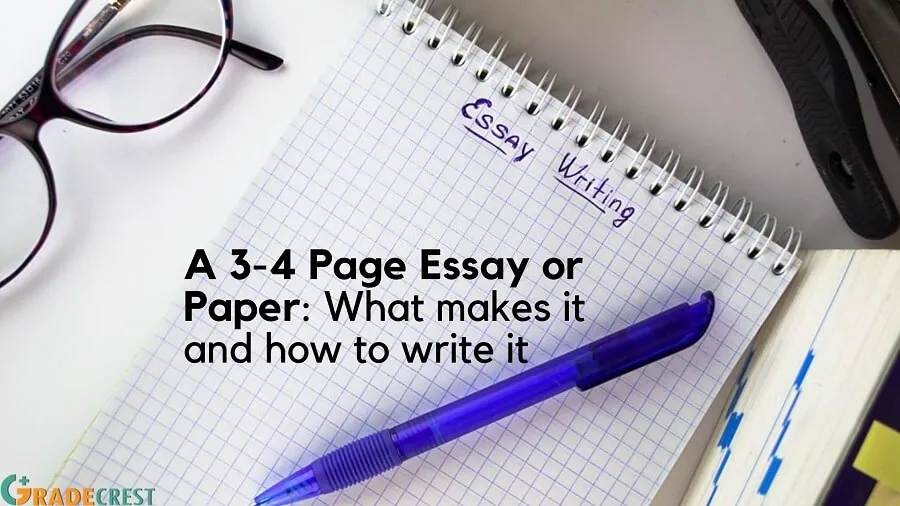
High school, college, and university life is rife with writing essays and research papers. In some cases, you will encounter as long as over 10-15-page research paper assignments. And as you might have also noticed, most professors, instructors, and teaching assistants like assigning short papers or essays below ten pages: mostly 3-8 pages long.
A commonly assigned paper is a 3-4-page essay, which falls under the short essays or paper category. We often find questions like “how many paragraphs or how long is a 3-4-page paper?” “What should I include in a 3-4-page paper to get the highest score?” or even “does a 3-4-page paper have an introduction and conclusion?”
If you are among those who often worry about what to include in a three or 4-page paper, this guide speaks directly to you. In a few minutes, you will be a pro at writing a 3 to 4-page essay. Better still, we have included topics and tips to help you ace your essay assignment without worrying whether you overwrote or underwrote your essay.
But before we even delve deeper, if you are running short of time and patience and need a custom-written essay that is 100% original, well-researched, cited, and proofread, do not hesitate to hire an essay writer on our website.
Let’s get started with exploring more about a 3-4-page paper.
What is a 3-4-page Paper or Essay?
As challenging as most students find essay writing, it comes with the gift you will carry through your professional life to your grave. Writing an essay demonstrates that you can comprehensively research, organize, and present facts on a given topic. It is a way of expressing yourself.
Many students, mostly our clients, often wonder what makes a 3 to 4-page essay and are afraid to ask an instructor. The instructor expects that you understand the limits and tests whether you can take instructions on not by looking at the length of your essay apart from the coherence of the content.
A 3-4-page paper is around 825-1200 words long with 4-5 points well-argued and organized in paragraphs, including the arguments and counterarguments. It is a complete essay with a title page, introduction, body paragraphs, conclusion paragraph, and reference list. The is typically longer than a typical 5-paragraph essay (250-550 words) and often has more points/paragraphs that are well-balanced, cited, and intertwined. It can be anything between 800 and 1200 words, meaning you can meet the lower threshold but cannot exceed the 1200-word limit.
If you are unsure about the exact word count for your paper, ask your instructor for clarification early enough.
When assigned to write a 3-4-page essay, you can either write a 3-full-page essay or a 4-full-page essay but do not exceed 4 pages or go below 3 pages.
A three-page paper is about 825-900 words long, while a four-page paper is about 1100 and 1200 words. This means that if you decide to meet the lower limit of 3 pages, you can write anything between 825 words and 900 words or even exceed through to any number of words up to 1200 words. Going beyond the word count can attract a deduction of grades, or your professor can mark until the word count is fulfilled, leaving out a potentially marks-rich section of your paper.
Given that a page has 3-4 paragraphs , a 3-page paper will have either 6 or 8 paragraphs, while a typical 4-page paper has 8 and 9 paragraphs, and a 3-4-page paper should have between 6 and 9 paragraphs.
How long it takes to complete a 3-4-page Essay or Paper?
We have mentioned that a 3-4-page essay has between 825 and 1200 words (double-spacing) and comprises 6-9 paragraphs. It is quite a short paper that requires a few hours to complete. Many factors contribute to how long it takes to complete an essay . Such factors include the deadline from class, your motivation, how well you understand the topic, availability of material, expertise in writing research papers and essays, organizational skills, typing speed, and many other factors.
You will most likely be assigned to write a 3-4-page paper in 1-2 days. However, you can complete your paper in a few hours if you plan your time well. For a professional, writing a 3-4 page essay can be done within an hour to three, especially if it is a last-minute writing help request .
A 3-4 double-spaced essay should take 3-4 hours to complete, assuming you write a page per hour. A professional would optimally require 2-3 hours to complete such an essay to the required standards. If it is a single-spaced essay, it will take between 6 hours and 8 hours to complete. The rationale here is that a single-spaced paper contains two double-spaced pages. You should take note of the spacing lest you miss the word count.
We’ve seen students coming to us for a last-minute request for us to fulfill their word count or paraphrase their essays to the right word count because they understood the word count at the last minute.
If you have a day to complete a 3-4 page essay, spend 3-4 hours planning and researching (prewriting process), 6-7 hours writing the essay, and 4-5 hours polishing, editing, and proofreading the essay. If you have two days, your prewriting process should take at least 5 hours, the writing process a day, and the post-writing stage should take at least 4-5 hours before submitting the essay.
Parts of a 3-4 Page Essay: The Structure
A 3-4-page essay or paper has the contents and structure of a typical essay. It comprises a title page formatted in APA, MLA, Harvard, or Chicago, the introduction paragraph, body paragraphs, conclusion paragraphs, and the reference list in the recommended referencing/formatting style. Let’s clarify the structure of a three- to four-page essay or paper.
- Title page. This is the first section of any academic paper and does not contribute to the word count. It should contain your details, details of the school, and information about your assignment, such as the title. Format it as required. It can be in APA, MLA, Harvard, Chicago, Turabian, Oxford, or AGLC formatting, depending on what you have been advised to use or your subject.
- Introduction paragraph. This is the opening paragraph of your paper, and it should have an attention grabber or hook , background information, and the thesis statement . Sometimes, you can also use signposts in this section to let your readers know how your paper is organized.
- Body paragraphs. These are your essay's main paragraphs where you argue your thesis statement. Each body paragraph has a unique topic sentence followed by supporting details and a concluding sentence. Ensure that you stick to one idea per body paragraph. You should link the paragraphs using transition or linking words for a good flow. The body section comprises 80% of the word count.
- Conclusion paragraph. This is the last paragraph of your essay, making 10% of the word count and winding up the essay. You should restate your thesis .
- Reference list (works cited page or bibliography). Here is where you list all the scholarly resources you used in developing the essay. The reference list should be alphabetical as required by the formatting style you have chosen or have been directed to use.
When assigned to write an essay three or four pages long, ensure you have structured your paper as outlined above. Once you have broken down the paper and developed an essay outline , you can brainstorm ideas and write the paper fast.
Tips for Writing a 3/4 Page Essay Fast
In most cases, failing a 3-4-page essay with a 48-72-hour deadline is easier than failing a short or long paper with a longer deadline. Your mind technically sets to panic mode, especially if it is a paper that contributes most to your grades.
If you are assigned to write an essay that is three to four pages long, here are some tips to consider:
- Begin Early. You must begin the prewriting process after you are assigned the paper. You are still fresh with ideas from class and can brainstorm ideas without the fatigue of research and distractions.
- Choose a topic you can explore. If you are left to choose a topic on your own, go for an exciting topic you can spend time researching and sharing with anyone without limitations. Also, consider a topic with supporting materials such as books, peer-reviewed journals, and other scholarly resources.
- Schedule time and focus. You need to concentrate on your paper; the only best way could be to create a schedule. Decide on what you will do, in what order, and within a specific duration. When scheduling, remember to factor in writing and research when you are alert and active. You can do this early in the morning if you are an early riser or late into the night if you are a night owl. Besides, ensure that you reduce any distractions around you. Don’t log into social media, play games, or chat with friends until you finish the paper. You can listen to cool music and find the best place to do your assignment .
- Brainstorm and Research Widely. Using references, you will present ideas on a topic and need to support your assertions, claims, and arguments. Therefore, you need to brainstorm good ideas to make your paper weighty. Brainstorming helps you save time and write consistently because you develop the bigger picture. As you brainstorm, draw mind maps, concept maps, or flow charts to help you arrange ideas. You can then research and organize your resources before you begin writing. It is best to start by reading the non-scholarly sources to familiarize yourself with the topic before extending to the scholarly sources you can get points to use and cite in your 3-4-page paper. The research should yield enough to develop a preliminary thesis.
- Write first and edit later. The process will be manageable when writing the paper, courtesy of the previous steps. Assuming you have an outline, compartmentalize the information from the research and develop your paragraphs. Write the body paragraphs first, the introduction second, and the conclusion last, or choose whatever order you wish. Ensure that the body has 6-7 supporting ideas in its paragraphs. The body paragraphs should have a balanced length and must flow into one another. If you need to polish your preliminary thesis into a final one, do so after writing the body paragraphs because it should be the anchor.
- Polish the essay last. We said you leave editing and polishing for later. Well, take a break after writing to develop an objective mindset and break away from the monotony of writing. Check your paper for spelling, grammar, and punctuation. If there are any errors, strive to remove them. You can run the paper through editing software like Grammarly or Hemmingway Editor to spot and correct errors and omissions. Format the paper in APA, MLA, Harvard, or Chicago format. Ensure that you do a quick proofreading. If possible, read it aloud to yourself to spot more mistakes and make amendments.
Our writers use these tips when writing papers for our esteemed clients. We are a leading fast essay writing service catering to your urgent writing needs. The more you use these tips, the more you become great at writing essays. You can never hate writing essays once you master the entire process.
Topics for 3-4 page Essays that You Can Consider
Consider the topics outlined below if you want a quick topic for a three-page or four-page essay.
- The impacts of cryptocurrencies on cybersecurity
- Impacts of youth unemployment on teenage pregnancies
- Importance of being honest
- Private prison systems
- Benefits of the electoral college
- Importance of global peace on development
- Benefits of flexible working arrangements
- Importance of school uniforms
- How workforce diversity affects organizational Performance
- How to address work stress?
- Benefits of training police officers on computers
- Strategies to support homeless people
- Benefits of investing in books
- Children should be taught about investments and personal finance
- Negative impacts of helicopter parenting
- How to address mental health issues among school-going girls
- Social media and academic performance
- Benefits of pursuing STEM subjects
- Impacts of GMOs on food security
- Strategies to overcome homesickness
- How to overcome culture shock?
- Consumerism pollutes the planet
- Talks are better than Wars: Russia-Ukraine Conflict
- Causes and consequences of infidelity
- How to maintain a long-distance relationship?
- Overcoming low self-esteem
- Homelessness and unemployment
- Physical activity and obesity
- Benefits of Intermittent Fasting
- Consequences of Bulimia
- Portion control and weight loss
- Benefits of restriction what we eat
- Is gut instinct always correct?
- Disadvantages of birth control
- Should abandoned kids be adopted?
- Causes and consequences of police brutality
- Benefits of being earnest
- How to manage time as a student?
- Ways to pay for tuition without a loan
- Can someone learn programming on their own?
- Reasons to ban animal testing
- People should not be forced to get a vaccination
- How marketers influence what we eat
- Is Big Pharma controlling our lives?
- Causes and consequences of corruption
- Impacts of racism
- Causes and consequences of hate crimes
- Recycling should be compulsory
- Citizens should not be allowed to carry guns
- Consequences of white privilege
- Pros and cons of online retail
- Mobile phones and surveillance
- Impacts of state surveillance on citizens
- Should students be taught about taxation?
- How to prevent ocean pollution?
- Benefits of conserving endangered species
- Causes of increasing divorce rates
- Impacts of violent TV programs and games on the youth
- How family values influence how a child grows
- Impacts of stem cell research on chronic diseases
- The American Judiciary System
- Causes of the Russian-Ukraine war
- How to prevent drug trafficking?
- How human trafficking affects families
- Prostitution should be legalized
- Is microchipping a pet illegal?
- Benefits of keeping pets
- Consequences of the digital divide
- Should college education be free?
- Should students be forgiven their education loans?
There are many more essay topics that you can consider. Check out our list of compare and contrast topics , topics for learning disabilities , nutrition essay topics , social issues, and topics , or argumentative essay topics . Our blog section has an endless list of good topics you can write your 3/4-page essay about. If you need help writing your essay, ask for help from our website.
Parting Words
Writing a three to four-page paper or essay is not without any challenges. Students often find such papers challenging, especially if they do not know the word count and page limits to meet.
If you are working against a deadline, you can now write the paper thanks to the steps, tips, and insights we have shared above. Instead of procrastinating or missing a deadline, plan early, schedule everything, and write the paper without pressure.
To write a 3/4–page paper faster, ensure that you plan everything. And if you need help, don’t hesitate to place an order by visiting our homepage and filling out the order form. With our writing service, you can beat deadlines and produce an excellent paper with suitable marks or higher grades.

Gradecrest is a professional writing service that provides original model papers. We offer personalized services along with research materials for assistance purposes only. All the materials from our website should be used with proper references. See our Terms of Use Page for proper details.

- Thesis Action Plan New
- Academic Project Planner
- Literature Navigator
- Thesis Dialogue Blueprint
- Writing Wizard's Template
- Research Proposal Compass
- Why students love us
- Why professors love us
- Why we are different
- All Products
- Coming Soon

5 Effective Strategies to Uncover the Perfect Psychology Research Topic

Sourcing Ideas: Innovative Topics for Your Academic Thesis

5 Essential Steps on How to Identify a Good Research Topic

Crafting Your Inquiry: How to Find the Perfect Research Question for Your Dissertation

Upholding Standards: The Importance of Ethics in Interview Research

Organizing Interview Data: Techniques for Efficient Data Management

Truth in Testimony: Embracing the Realities of Field Interviews

Interviews in the Field: Conducting Effective Research Outside the Lab
How to effortlessly write a 3-page essay: a student's guide.

Writing a 3-page essay can be an intimidating task for many students, but with the right approach, it can be a manageable and even enjoyable process. This guide provides a comprehensive approach to effortlessly crafting a well-structured and engaging essay. By following these steps, students can navigate the complexities of essay writing and produce a polished piece that effectively communicates their ideas.
Key Takeaways
- Start by thoroughly understanding the assignment to ensure that your essay meets the requirements and addresses the prompt accurately.
- Choose a topic that not only interests you but also fits the scope of the assignment and allows for adequate exploration within three pages.
- Conduct preliminary research to gather relevant information and insights that will form the foundation of your essay's argument or narrative.
- Develop a clear thesis statement and create an outline to organize your main points and supporting evidence in a logical and coherent manner.
- Refine your essay through revision strategies, focusing on clarity, coherence, and proper citation, while also seeking feedback to improve your work.
Preparation: Laying the Groundwork for Your Essay
Understanding the assignment.
Before you dive into writing your essay, it's crucial to fully grasp the assignment at hand. Carefully read the prompt to ensure you understand the expectations and requirements. Look for key verbs that indicate the task you need to accomplish, such as 'analyze,' 'compare,' or 'describe.' These action words are your guideposts for structuring your essay and developing your thesis.
To further clarify the assignment, consider the following steps:
- Reread the assignment prompt multiple times to avoid missing critical details.
- Use tools like analytical thesis generators or worksheets to help organize your thoughts.
- Consult resources such as academic blogs or guides that break down complex instructions into simple, actionable steps.
Remember, there may be more than one correct approach to the assignment, so don't hesitate to explore different angles or interpretations as you begin your preliminary research.
Choosing a Topic
Once you understand the assignment, the next step is to choose a topic that not only interests you but also meets the criteria of the assignment. Selecting a relevant and engaging topic is crucial as it will determine the direction and scope of your research. Consider topics that spark your curiosity and are feasible to explore within the constraints of a 3-page essay.
When brainstorming for topics, create a list of potential ideas. Here's a simple way to organize your thoughts:
- Reflect on your interests and academic strengths
- Review recent sociological interest or trends in your field
- Consider the cohesiveness of your potential topic
- Evaluate the availability of sources and evidence
After narrowing down your options, validate your topic by conducting a preliminary literature review . This will help you gauge the depth of existing research and ensure that your topic is original yet grounded in scholarly work. Remember, a well-chosen topic is a foundation for a compelling essay, so take the time to choose wisely.
Conducting Preliminary Research
Before diving into the writing process, it's crucial to conduct preliminary research to ensure you have a solid foundation for your essay. Start by exploring various sources to gather a broad understanding of your topic. Utilize online databases, academic journals, and books to accumulate a diverse range of perspectives and data. Ensure that your sources are credible and relevant to your essay's focus.
As you sift through the information, take notes and organize your findings. Look for patterns and key themes that emerge, which can guide the direction of your essay. Remember, preliminary research is not just about collecting data; it's about engaging with the material to form a deeper understanding. Use tools like mind maps or bullet points to summarize and connect ideas:
- Achieve a basic understanding before delving deeper
- Recap main points and key findings
- Address limitations or constraints
Finally, don't hesitate to reach out to experts or utilize academic support platforms that offer resources on effective research techniques. Websites like Research Rebels provide tools for thesis writing , academic projects, and research proposals, and can be invaluable in shaping your essay's foundation.
Structuring Your Essay: A Blueprint for Success
Crafting a thesis statement.
A thesis statement is the backbone of your essay, encapsulating the main argument in a single, coherent sentence. It guides the direction of your paper and informs the reader of your position on the topic. To craft a compelling thesis statement, start by asking yourself what the core message you want to convey is. Ensure that it is debatable and can be supported by evidence throughout your essay.
Consider using tools and resources to refine your thesis statement. Websites offer tools for thesis writing , academic planning, and research proposal, which can be invaluable in this process. For instance, a Thesis Action Plan or Worksheets can help you organize your thoughts and structure your argument effectively.
Remember, a strong thesis statement is specific and clear. It should not be a mere statement of fact, but rather an assertion that requires proof and elaboration. As you draft your thesis, keep in mind the importance of your master thesis in graduate programs for independent research and contribution to the field. A well-crafted thesis statement is a testament to your critical thinking and academic prowess.
Outlining the Main Points
Once you have a working thesis statement , it's time to map out the main points that will form the backbone of your essay. Begin by identifying the key arguments or themes that support your thesis. These will serve as the guiding stars for your body paragraphs, each addressing a distinct aspect of your topic. For instance, if your essay is analyzing a literary work, you might use one paragraph to discuss the narrative style, another for character development, and a third for thematic elements.
Organize your main points in a logical sequence to ensure a natural progression of ideas. This not only aids in the clarity of your essay but also makes it more persuasive. A bulleted list can help you visualize the structure:
- Introduction with thesis statement
- Main Point 1: Narrative style
- Main Point 2: Character development
- Main Point 3: Thematic elements
- Conclusion that reinforces the thesis
Remember, each main point should be elaborated with evidence and analysis, tying back to your central argument. As you outline these points, consider any potential counterarguments and how you will address them. This will strengthen your essay and demonstrate a comprehensive understanding of the subject.
Organizing Supporting Evidence
Once you have gathered your evidence, it's crucial to organize it in a way that supports your thesis statement and overall argument. Start by categorizing your evidence based on themes or aspects of your topic. Create a hierarchy of evidence , prioritizing the most compelling pieces that directly reinforce your thesis. Consider using a graphic organizer or a simple table to visually map out how each piece of evidence connects to your main points.
For a coherent essay, your supporting evidence should follow a logical order. You might arrange it chronologically, spatially, or by order of importance—often referred to as emphatic order. This structure ensures that each piece of evidence builds upon the previous one, leading to a strong, persuasive argument. Remember, the goal is to make your essay as clear and convincing as possible to the reader.
To further enhance the organization of your essay, integrate tools and resources that can guide you through the process. Websites offering thesis tools , worksheets, and resources for students and professors can be invaluable. Features like an academic project planner , literature navigator, and research proposal compass can streamline your efforts and provide structured guidance.
Writing Techniques: Enhancing Your Expression
Developing a clear and concise style.
To write a 3-page essay that resonates with clarity and brevity, you must embrace the art of conciseness . Begin by eliminating unnecessary phrases and redundancies, which can obscure your main points. Instead, use clear and straightforward language that directly conveys your ideas. Writing in the active voice is a powerful tool for achieving this goal, as it makes your sentences more dynamic and easier to understand.
Incorporate these strategies into your writing:
- Write concisely to ensure each word serves a purpose.
- Use words you fully understand to avoid confusion.
- Apply technical terms sparingly to maintain accessibility.
- Shorten wordy phrases to enhance readability.
By refining your writing style, you not only communicate more effectively but also create a more engaging and persuasive essay. Remember, a clear and concise style is not just about reducing word count—it's about maximizing the impact of your words.
Incorporating Transitions for Flow
To achieve a seamless flow in your essay, it's essential to master the art of transition. Transitional words and phrases act as bridges between your ideas, guiding your reader from one point to the next with clarity and coherence. Consider the relationship between your paragraphs and how each one connects to the overall arc of your essay.
Here are some tips to enhance the flow of your writing:
- Begin by identifying the logical connection between paragraphs. Ask yourself what you want the reader to understand or feel as they move from one section to another.
- Use transitional phrases to signal the relationship, whether it's to show contrast, sequence, cause and effect, or another type of link.
- Vary your transitions to avoid repetition and maintain the reader's interest. A diverse range of expressions will enrich your essay's readability.
Remember, the key to producing good transitions is highlighting connections between corresponding paragraphs . By referencing in one paragraph the relevant material from the previous one, you create a thread that weaves through your essay, enhancing its overall structure and flow.
Avoiding Common Pitfalls in Grammar and Syntax
To excel in essay writing, you must navigate the treacherous terrain of grammar and syntax with precision. Avoid common mistakes such as incorrect word choices, punctuation errors, and syntax mishaps. These can undermine the credibility of your work and distract from your argument. For instance, confusing 'they're', 'their', and 'there' can significantly detract from the reader's experience.
To ensure your essay is free of these errors, consider using tools like Grammarly, which checks your writing for common spelling , grammar, and punctuation mistakes. Additionally, familiarize yourself with the top errors in undergraduate writing, such as missing commas after introductory elements or vague pronoun references. Here's a concise list to keep in mind:
- Wrong word usage
- Missing commas
- Incomplete documentation
- Overuse of passive voice
- Dangling modifiers
Remember, the goal is to communicate your ideas clearly and effectively. By paying close attention to these details, you can enhance the readability of your essay and present your arguments more persuasively.
Revision Strategies: Refining Your Draft
Self-editing and peer reviews.
After completing your essay draft, it's crucial to engage in self-editing and seek peer reviews to enhance the quality of your work. Begin with a thorough self-assessment using an Editing Checklist to identify areas for improvement. This checklist should cover aspects such as clarity, coherence, and citation accuracy. For instance, you might model the use of the self-edit column with your essay, assuming the role of author, and then have a peer complete the peer-edit column, providing fresh perspectives on your writing.
Next, utilize available resources that offer tools for thesis writing, academic planning, and research proposal. Websites featuring worksheets and project planners can be instrumental in organizing your thoughts and structuring your revisions. Engage with platforms that bridge the gap between academic jargon and everyday language, simplifying complex procedures into clear, actionable steps.
Finally, ensure that your citations and formatting adhere to the appropriate style guides. Whether it's APA, MLA, or another format, checking citations and formatting is a critical step in the revision process. This attention to detail will not only improve the credibility of your essay but also prepare you for the rigorous standards of academic writing.
Improving Clarity and Coherence
To enhance the clarity and coherence of your essay, start by ensuring that each sentence clearly conveys its intended message. Avoid vague language and opt for precise, concrete terms that paint a clear picture for your reader. For instance, instead of saying 'many people are affected,' specify who is affected and how. This specificity not only improves clarity but also adds depth to your writing.
When it comes to coherence, the logical flow of ideas is paramount. Begin with familiar information and gradually introduce new concepts. This method guides your readers through your argument in a way that is easy to follow and understand. Additionally, make use of transitional phrases to connect sentences and paragraphs, thereby weaving a cohesive narrative throughout your essay.
Here are some common pitfalls to avoid in order to maintain clarity and coherence:
- Introducing new arguments in the conclusion
- Overuse of complex jargon without explanation
- Failing to connect the conclusion back to the introduction
Remember, revising for clarity and coherence is not just about fixing errors; it's about refining your message. Break down tasks into manageable steps and write in short bursts to keep your writing focused. Regularly review your work to ensure that each sentence and paragraph contributes to the overall thesis of your essay.
Finalizing Citations and References
As you approach the completion of your essay, it's crucial to ensure that your citations and references are meticulously organized and formatted. The purpose of citations is not only to give credit to others for their ideas but also to provide a pathway for your readers to further explore the topic. Different citation styles require varying formats, so it's important to adhere to the guidelines of the one you've chosen.
Here are some steps to finalize your citations and references:
- Double-check each citation in the text to ensure it matches the corresponding reference in your bibliography.
- Verify that all references are complete, including author names, publication dates, and page numbers where applicable.
- Organize the reference list alphabetically by the last name of the first author or by the title if no author is listed.
- Review the formatting one last time to catch any inconsistencies or errors.
Remember, writing your essay does not finish with the first draft. Revisiting and refining your citations and references is a key step in polishing your essay and presenting it in the best light.
Overcoming Challenges: Tips for Staying Motivated
Managing time effectively.
Effective time management is a cornerstone of academic success, particularly when it comes to essay writing. Block out time each day for your essay-related tasks to create a consistent writing routine . Utilize tools like the Class Schedule and Time Study Template by ClickUp to structure your study time and stay on track.
Consider breaking down the essay into smaller, manageable sections. For instance, dedicate specific time slots to brainstorming, researching, and writing individual paragraphs. This approach aligns with the advice from the University of Nevada, Reno, which emphasizes the importance of assessing and organizing your time for a smoother writing process.
To further enhance your efficiency, practice writing under time pressure before the actual essay deadline. This strategy, recommended by the Writing and Communication Centre, can help you develop the ability to articulate your thoughts quickly and clearly. Remember, effective time management is crucial for thesis writing, so prioritize your tasks and set realistic goals to maintain focus and motivation throughout the essay writing journey.
Dealing with Writer's Block
Writer's block can feel like an insurmountable barrier, but with the right approach, you can overcome it and maintain your writing momentum. Set incredibly achievable goals to break down your tasks into manageable steps. For instance, commit to writing a single paragraph or for a specific time period, such as 15 minutes, without worrying about the end result. This can help you to start writing and build confidence as you progress.
Replace non-productive thoughts with productive ones. Instead of thinking, 'I'm a bad writer,' tell yourself, 'I'm developing my writing skills.' Remember, consistency is key. Sit down and write regularly, even if it's just a stream of consciousness or bullet points. Over time, these sessions can evolve into substantial pieces of your essay.
Lastly, monitor your achievements, no matter how small. Celebrate each step forward, which will fuel your motivation and help you to keep pushing through the challenges of writer's block.
Seeking Feedback and Utilizing Resources
Once you've drafted your essay, seeking feedback is a crucial step in refining your work. Begin by sharing your essay with peers or mentors who can provide constructive criticism. Remember to say something positive about their feedback, even if it's critical. This encourages a supportive environment and ensures that the critique is focused on the writing, not the writer. Be specific in your requests for feedback; ask them to prioritize their comments so you can address the most significant issues first.
In addition to personal feedback, explore academic resources that can further enhance your essay. Utilize tools such as worksheets, templates, and research proposal guides available on various educational websites. These resources are designed to help you evaluate and improve your essay's structure and content. For instance, the GMU Writing Center's advice on providing feedback emphasizes the importance of being specific and prioritizing comments, which can be instrumental in revising your essay.
Lastly, ensure that your topic is appropriate and achievable by reviewing student-selected topics . This step is vital to confirm that your essay meets the assignment's requirements and is within your capability to complete. Academic platforms often offer features like academic project planners and literature navigators, which can be invaluable in organizing and executing your research effectively.
Facing obstacles can be daunting, but with the right mindset and tools, you can overcome them and stay motivated on your journey. Whether it's a personal goal or a professional project, remember that perseverance is key. For more in-depth strategies and personalized advice, visit our website . We're dedicated to helping you succeed and keep pushing forward, no matter the challenge. Don't let temporary setbacks hold you back. Take the next step and empower yourself today!
In summary, writing a three-page essay need not be an arduous task. By following a structured approach, understanding the assignment, and employing effective writing techniques, students can produce a concise and compelling essay with relative ease. It is essential to remember that the key to effortless essay writing lies in preparation, organization, and clarity of thought. Utilizing the guidance provided in this article, students can navigate the essay-writing process with confidence and achieve academic success. As with any skill, practice is paramount, so continue to hone your writing abilities with each new assignment. Embrace the journey of academic writing, and let each essay be a step towards mastering the art of expressing your ideas with precision and persuasiveness.
Frequently Asked Questions
How can i choose a suitable topic for my 3-page essay.
Start by considering the guidelines of your assignment and your interests. Brainstorm ideas and narrow them down to topics with enough depth to explore in three pages but not so broad that they require more space.
What is the best way to structure a 3-page essay?
A typical structure includes an introduction with a thesis statement, three body paragraphs each presenting a main point supported by evidence, and a conclusion that summarizes the essay and restates the thesis.
Can you provide tips for developing a clear and concise writing style?
Focus on clarity by using straightforward language, short sentences, and active voice. Be concise by eliminating unnecessary words and avoiding repetition. Ensure each sentence contributes to your argument.
How important is the revision process in essay writing?
Revision is crucial. It allows you to refine your arguments, improve structure and flow, correct grammar and spelling mistakes, and ensure that your essay clearly communicates your ideas.
What are some common pitfalls in grammar and syntax I should avoid?
Common pitfalls include run-on sentences, sentence fragments, improper use of commas, and mixing up homophones. Always proofread your essay or use grammar-checking tools to avoid these errors.
How can I stay motivated when writing an essay?
Set clear goals, break the writing process into manageable steps, and take regular breaks. If you encounter writer's block, try changing your environment or discussing your ideas with someone else for inspiration.

- Rebels Blog
- Terms and Conditions
- Payment and Shipping Terms
- Privacy Policy
- Return Policy
© 2024 Research Rebels, All rights reserved.
Your cart is currently empty.
Have a language expert improve your writing
Run a free plagiarism check in 10 minutes, generate accurate citations for free.
- Knowledge Base
The Beginner's Guide to Writing an Essay | Steps & Examples
An academic essay is a focused piece of writing that develops an idea or argument using evidence, analysis, and interpretation.
There are many types of essays you might write as a student. The content and length of an essay depends on your level, subject of study, and course requirements. However, most essays at university level are argumentative — they aim to persuade the reader of a particular position or perspective on a topic.
The essay writing process consists of three main stages:
- Preparation: Decide on your topic, do your research, and create an essay outline.
- Writing : Set out your argument in the introduction, develop it with evidence in the main body, and wrap it up with a conclusion.
- Revision: Check your essay on the content, organization, grammar, spelling, and formatting of your essay.
Instantly correct all language mistakes in your text
Upload your document to correct all your mistakes in minutes

Table of contents
Essay writing process, preparation for writing an essay, writing the introduction, writing the main body, writing the conclusion, essay checklist, lecture slides, frequently asked questions about writing an essay.
The writing process of preparation, writing, and revisions applies to every essay or paper, but the time and effort spent on each stage depends on the type of essay .
For example, if you’ve been assigned a five-paragraph expository essay for a high school class, you’ll probably spend the most time on the writing stage; for a college-level argumentative essay , on the other hand, you’ll need to spend more time researching your topic and developing an original argument before you start writing.
Prevent plagiarism. Run a free check.
Before you start writing, you should make sure you have a clear idea of what you want to say and how you’re going to say it. There are a few key steps you can follow to make sure you’re prepared:
- Understand your assignment: What is the goal of this essay? What is the length and deadline of the assignment? Is there anything you need to clarify with your teacher or professor?
- Define a topic: If you’re allowed to choose your own topic , try to pick something that you already know a bit about and that will hold your interest.
- Do your research: Read primary and secondary sources and take notes to help you work out your position and angle on the topic. You’ll use these as evidence for your points.
- Come up with a thesis: The thesis is the central point or argument that you want to make. A clear thesis is essential for a focused essay—you should keep referring back to it as you write.
- Create an outline: Map out the rough structure of your essay in an outline . This makes it easier to start writing and keeps you on track as you go.
Once you’ve got a clear idea of what you want to discuss, in what order, and what evidence you’ll use, you’re ready to start writing.
The introduction sets the tone for your essay. It should grab the reader’s interest and inform them of what to expect. The introduction generally comprises 10–20% of the text.
1. Hook your reader
The first sentence of the introduction should pique your reader’s interest and curiosity. This sentence is sometimes called the hook. It might be an intriguing question, a surprising fact, or a bold statement emphasizing the relevance of the topic.
Let’s say we’re writing an essay about the development of Braille (the raised-dot reading and writing system used by visually impaired people). Our hook can make a strong statement about the topic:
The invention of Braille was a major turning point in the history of disability.
2. Provide background on your topic
Next, it’s important to give context that will help your reader understand your argument. This might involve providing background information, giving an overview of important academic work or debates on the topic, and explaining difficult terms. Don’t provide too much detail in the introduction—you can elaborate in the body of your essay.
3. Present the thesis statement
Next, you should formulate your thesis statement— the central argument you’re going to make. The thesis statement provides focus and signals your position on the topic. It is usually one or two sentences long. The thesis statement for our essay on Braille could look like this:
As the first writing system designed for blind people’s needs, Braille was a groundbreaking new accessibility tool. It not only provided practical benefits, but also helped change the cultural status of blindness.
4. Map the structure
In longer essays, you can end the introduction by briefly describing what will be covered in each part of the essay. This guides the reader through your structure and gives a preview of how your argument will develop.
The invention of Braille marked a major turning point in the history of disability. The writing system of raised dots used by blind and visually impaired people was developed by Louis Braille in nineteenth-century France. In a society that did not value disabled people in general, blindness was particularly stigmatized, and lack of access to reading and writing was a significant barrier to social participation. The idea of tactile reading was not entirely new, but existing methods based on sighted systems were difficult to learn and use. As the first writing system designed for blind people’s needs, Braille was a groundbreaking new accessibility tool. It not only provided practical benefits, but also helped change the cultural status of blindness. This essay begins by discussing the situation of blind people in nineteenth-century Europe. It then describes the invention of Braille and the gradual process of its acceptance within blind education. Subsequently, it explores the wide-ranging effects of this invention on blind people’s social and cultural lives.
Write your essay introduction
The body of your essay is where you make arguments supporting your thesis, provide evidence, and develop your ideas. Its purpose is to present, interpret, and analyze the information and sources you have gathered to support your argument.
Length of the body text
The length of the body depends on the type of essay. On average, the body comprises 60–80% of your essay. For a high school essay, this could be just three paragraphs, but for a graduate school essay of 6,000 words, the body could take up 8–10 pages.
Paragraph structure
To give your essay a clear structure , it is important to organize it into paragraphs . Each paragraph should be centered around one main point or idea.
That idea is introduced in a topic sentence . The topic sentence should generally lead on from the previous paragraph and introduce the point to be made in this paragraph. Transition words can be used to create clear connections between sentences.
After the topic sentence, present evidence such as data, examples, or quotes from relevant sources. Be sure to interpret and explain the evidence, and show how it helps develop your overall argument.
Lack of access to reading and writing put blind people at a serious disadvantage in nineteenth-century society. Text was one of the primary methods through which people engaged with culture, communicated with others, and accessed information; without a well-developed reading system that did not rely on sight, blind people were excluded from social participation (Weygand, 2009). While disabled people in general suffered from discrimination, blindness was widely viewed as the worst disability, and it was commonly believed that blind people were incapable of pursuing a profession or improving themselves through culture (Weygand, 2009). This demonstrates the importance of reading and writing to social status at the time: without access to text, it was considered impossible to fully participate in society. Blind people were excluded from the sighted world, but also entirely dependent on sighted people for information and education.
See the full essay example
Here's why students love Scribbr's proofreading services
Discover proofreading & editing
The conclusion is the final paragraph of an essay. It should generally take up no more than 10–15% of the text . A strong essay conclusion :
- Returns to your thesis
- Ties together your main points
- Shows why your argument matters
A great conclusion should finish with a memorable or impactful sentence that leaves the reader with a strong final impression.
What not to include in a conclusion
To make your essay’s conclusion as strong as possible, there are a few things you should avoid. The most common mistakes are:
- Including new arguments or evidence
- Undermining your arguments (e.g. “This is just one approach of many”)
- Using concluding phrases like “To sum up…” or “In conclusion…”
Braille paved the way for dramatic cultural changes in the way blind people were treated and the opportunities available to them. Louis Braille’s innovation was to reimagine existing reading systems from a blind perspective, and the success of this invention required sighted teachers to adapt to their students’ reality instead of the other way around. In this sense, Braille helped drive broader social changes in the status of blindness. New accessibility tools provide practical advantages to those who need them, but they can also change the perspectives and attitudes of those who do not.
Write your essay conclusion
Checklist: Essay
My essay follows the requirements of the assignment (topic and length ).
My introduction sparks the reader’s interest and provides any necessary background information on the topic.
My introduction contains a thesis statement that states the focus and position of the essay.
I use paragraphs to structure the essay.
I use topic sentences to introduce each paragraph.
Each paragraph has a single focus and a clear connection to the thesis statement.
I make clear transitions between paragraphs and ideas.
My conclusion doesn’t just repeat my points, but draws connections between arguments.
I don’t introduce new arguments or evidence in the conclusion.
I have given an in-text citation for every quote or piece of information I got from another source.
I have included a reference page at the end of my essay, listing full details of all my sources.
My citations and references are correctly formatted according to the required citation style .
My essay has an interesting and informative title.
I have followed all formatting guidelines (e.g. font, page numbers, line spacing).
Your essay meets all the most important requirements. Our editors can give it a final check to help you submit with confidence.
Open Google Slides Download PowerPoint
An essay is a focused piece of writing that explains, argues, describes, or narrates.
In high school, you may have to write many different types of essays to develop your writing skills.
Academic essays at college level are usually argumentative : you develop a clear thesis about your topic and make a case for your position using evidence, analysis and interpretation.
The structure of an essay is divided into an introduction that presents your topic and thesis statement , a body containing your in-depth analysis and arguments, and a conclusion wrapping up your ideas.
The structure of the body is flexible, but you should always spend some time thinking about how you can organize your essay to best serve your ideas.
Your essay introduction should include three main things, in this order:
- An opening hook to catch the reader’s attention.
- Relevant background information that the reader needs to know.
- A thesis statement that presents your main point or argument.
The length of each part depends on the length and complexity of your essay .
A thesis statement is a sentence that sums up the central point of your paper or essay . Everything else you write should relate to this key idea.
The thesis statement is essential in any academic essay or research paper for two main reasons:
- It gives your writing direction and focus.
- It gives the reader a concise summary of your main point.
Without a clear thesis statement, an essay can end up rambling and unfocused, leaving your reader unsure of exactly what you want to say.
A topic sentence is a sentence that expresses the main point of a paragraph . Everything else in the paragraph should relate to the topic sentence.
At college level, you must properly cite your sources in all essays , research papers , and other academic texts (except exams and in-class exercises).
Add a citation whenever you quote , paraphrase , or summarize information or ideas from a source. You should also give full source details in a bibliography or reference list at the end of your text.
The exact format of your citations depends on which citation style you are instructed to use. The most common styles are APA , MLA , and Chicago .
Is this article helpful?
Other students also liked.
- How long is an essay? Guidelines for different types of essay
- How to write an essay introduction | 4 steps & examples
- How to conclude an essay | Interactive example
More interesting articles
- Checklist for academic essays | Is your essay ready to submit?
- Comparing and contrasting in an essay | Tips & examples
- Example of a great essay | Explanations, tips & tricks
- Generate topic ideas for an essay or paper | Tips & techniques
- How to revise an essay in 3 simple steps
- How to structure an essay: Templates and tips
- How to write a descriptive essay | Example & tips
- How to write a literary analysis essay | A step-by-step guide
- How to write a narrative essay | Example & tips
- How to write a rhetorical analysis | Key concepts & examples
- How to Write a Thesis Statement | 4 Steps & Examples
- How to write an argumentative essay | Examples & tips
- How to write an essay outline | Guidelines & examples
- How to write an expository essay
- How to write the body of an essay | Drafting & redrafting
- Kinds of argumentative academic essays and their purposes
- Organizational tips for academic essays
- The four main types of essay | Quick guide with examples
- Transition sentences | Tips & examples for clear writing
Unlimited Academic AI-Proofreading
✔ Document error-free in 5minutes ✔ Unlimited document corrections ✔ Specialized in correcting academic texts
3 Page Essay: Examples, Topics, & Word Count
What does a three page essay look like? If you’re a student, you’ve probably asked yourself this question. 3 page essays are usually assigned to check one’s ability to formulate their thoughts. A three page essay word count is 700 to 750 words (12 pt double-spaced). A paper of 3 pages usually consists of 7 to 9 paragraphs.
When choosing a topic for a 3 pages essay, remember that it is quite a short piece. That’s why your topic shouldn’t be too complicated. You might want to focus on basketball, yourself, bullying, or responsibility.
If you’re searching for 3 page essay examples, look at the list below. We’ve gathered a collection of A+ samples for you to get inspired. Knock them dead!
3-page Essay Examples: 22948 Samples
Christian spirituality in lewis’s works about narnia.
- Subjects: Religion Theology
San Manuel Bueno, Mártir
- Subjects: Literature World Philosophy Literature
Terrorists and the Left and Right: Definitions & Examples
- Subjects: Terrorism Warfare
Mother Tongue by Amy Tan: What Does Your Language Say about Your Identity?
- Subjects: British Literature Literature
Abortion as a Controversial Issue
- Subjects: Health & Medicine Medical Ethics
The Situation at Segal Electric and Deming’s 14 Points
- Subjects: Business Business Critique
Sam Houston: Character Traits and Personality
- Subjects: Historical Figures History
Review of Looking Backward by Edward Bellamy
- Subjects: American Literature Literature
The Screwtape Letters by C.S. Lewis: A Book
Accounting and finance: importance of the studies in today’s society.
- Subjects: Accounting Business
Hassan and Amir: The Relations, Which Touch the Soul
- Subjects: Literature World Literature
Siemens: Motivation Within a Creative Environment
- Subjects: Business Management
Religious Convictions: Varied Views of Sayyid Qutb, Abd al Wahhab and John Wesley
- Subjects: Religion Sociology of Religion
“Emma” by Jane Austen: Main Character Analysis
Friendship of amir and hassan in the kite runner, lectio divina (genesis 18: 1- 5).
- Subjects: Religion Religious Writings
Concepts of the Rise and Fall of the Babylonian and Egyptian Empires
- Subjects: Ancient History History
Concepts of the Yield Management: Room Management
- Subjects: Business Employees Management
Concepts of Lessons from My Life as a Bully
- Subjects: Family, Life & Experiences Personal Experiences
African American Studies
- Subjects: Culture Ethnicity Studies
Lecture: Improving Your Confidence as a Speaker
- Subjects: Communications Sociology
- Words: 1160
Public Speaking in a Democracy
A practical handbook for the actor: gained knowledge to become an actor, argumentative paper on the pros of the death penalty.
- Subjects: Capital Punishment Debates Politics & Government
Concepts of Diary Account of the Whiskey Rebellion
- Subjects: History United States
My Changing Taste in Music
- Subjects: Art Music Genre
An Adventure with My Pet Pit-Bull Dog “Tiger”
- Subjects: Family, Life & Experiences Pets
History and Development of Dance
- Subjects: Art Dance
- Words: 1231
The Pfizer Company Business Model
- Subjects: Business Case Study
The Magic Ring
- Subjects: Art Film Studies
Wall Street (1987): Ethics Analysis
- Subjects: Entertainment & Media Movies
Memoirs of a Border Ranger
- Subjects: History Latin America
Looking at Women. Scott Russell Sanders
What are the stages of group development.
- Subjects: Sociological Theories Sociology
Walter Lee Younger: Character Analysis Essay
- Words: 1000
Teenage Alcoholism: Parental Influence and How to Get Rid of Vice
- Subjects: Psychology Psychology of Abuse
- Words: 1280
Why the Government Should Review and Add Laws Governing Diet Pills Introduction
- Subjects: Health & Medicine Pharmacology
Othello and Snow Country: Personal Opinion
- Subjects: Literature Plays
Comparing and contrasting “The Tyger” by William Blake with “Traveling through the Dark” by William Stafford
- Subjects: Comparative Literature Literature
Breaking Point of a Soul
- Subjects: Nazi Germany Warfare
- Words: 1326
Analysis of the reading experience for the “Framing Class”
Rhetorical analysis of the article.
- Subjects: Historical Fiction Comparison Literature

Team Building Issues
“who is a hero”.
- Subjects: Philosophical Concept Philosophy
Social, Cultural and Gender Inequality From a Global Perspective
- Subjects: Gender Inequality Sociology
The Effects of Quality Management on the Local and Global Competition
Egyptian hotel holiday policy, gambling projects: impact on the cultural transformations in america.
- Subjects: Economic Systems & Principles Economics
Analysis of the Performance of Domestic & Multinational US Restaurants
- Subjects: Economics Inflation
The Concept of Simple Stimulus Learning
- Subjects: Development Psychology
History of Children’s Literature in Western Culture
- Subjects: Cultural Diversity Culture
Critique of the Gersick’s Article
- Words: 1075
The M&M’s Company’s Marketing and Management Strategies
- Subjects: Business Strategy
The Impact of Computer-Based Technologies on Business Communication
- Words: 1567
Leasing Buildings Advantages and Disadvantages
- Subjects: Economics Regulation of Finance
“Khubilai Khan: His Life and Times” by Morris Rossabi
- Words: 1028
The Balkan Crisis: A Brief History
- Subjects: Modern Warfare Warfare
Critical Thinking Method vs. The Elements of Thought Questions: Finding Out Which Method Is More Effective
- Subjects: Applications of Psychology Psychology
- Words: 1068
Have Understanding of the Theory and Practice of Personal Selling
- Words: 1283
Theory and Practice of Personal Selling
Business strategies at the unilever company.
- Subjects: Business Company Analysis
Sexual Slavery and Prostitution During WWII and US Occupation in Japan
- Subjects: Warfare World War II
The Self Concept of Individuals
- Subjects: Cognition and Perception Psychology
A Critical Evaluation of Qualitative & Quantitative Research Designs
- Subjects: Sociological Issues Sociology
- Words: 1399
An Enemy of the People
- Words: 1016
Arguing against minimalism, and the notion that – less is more
- Subjects: Art Art Movement
Idealism and Realism
- Subjects: International Relations Theories Politics & Government
Modernization and Democratization
- Subjects: Politics & Government Social & Political Theory
Modern Liberalism and Modern Conservatism
- Subjects: Political Culture Politics & Government
Security System: Information and Property within Business
- Subjects: Computer Science Tech & Engineering
Convergence vs. Divergence of Culture and Literature – Examples
- Words: 1003
Discrimination Remedy at Workplace: Affirmative Action Programs, Reverse Discrimination and Comparable Worth
- Subjects: Business Workforce
Water Distribution System in Boston
- Subjects: Ecology Environment
Honesty in the Workplace
- Subjects: Business Business Ethics
Food Presentation as a Form of Art
- Subjects: Art Visual Arts
Concepts of Development of Jewish Culture
- Subjects: Culture Worldwide Cultures
Practices for Improving Employees Performance
Story analysis of “the outsiders” by s. e. hinton, implementation of physical restraints in the intensive care unit.
- Subjects: Health & Medicine Nursing
Mid-City at the Crossroads: Shaw Heritage Trail
- Words: 1023
Environmental Health and Safety
- Subjects: Environment Recycling
Solid Waste Management: Hazardous Waste Management
Connection between substance abuse and personality.
- Words: 1001
Companies Web Search: PWC, Northwestern Mutual and Target
- Subjects: Business Company Information
Handling Difficult In-Basket Activities
- Subjects: Education Teacher Career
Impediments to Political, Economic and Social Modernisation in Asia
Assessing academic progress after implementing technological changes.
- Subjects: Education Pedagogical Skills
The Global Economy: China
America’s war on drugs, is a college degree necessary.
- Subjects: Education Educational Stages
Competition Advantages for Producers and Consumers
- Subjects: Business Marketing
Technological Solutions to the Effects of Urban Sprawl
- Subjects: Environment Environmental Studies
Effects of Physical Education on Brain
- Subjects: Education Education Theories
Othello and Oedipus Rex Characters’ Traits
The vietnam war outcomes, groups and communities and their effect on individuality, black power and student rebellion.
- Subjects: Education Education Issues
The Future of Music Production
- Subjects: Art Music Industry
A Closer Look at the History of the Colonial America
The importance of referencing in university assignments.
- Subjects: Education Writing & Assignments
Short Detective Story
- Words: 2725
Do I Need God to be Moral or Happy?
- Subjects: Religion Religion, Culture & Society
Organizational Psychology Role in Recruiting
- Subjects: Psychological Issues Psychology
E-Business and Internet Technology
- Subjects: Business E-Commerce
McDonald’s Quality of Service: Just-In-Time Philosophy
Methamphetamine (meth).
- Subjects: Chemistry Sciences
Two Opposite Worlds: “Utopia” and “1984”
A high-toned old christian women by wallace stevens, multicultural competency and interactions among human.
- Subjects: Psychology Social Psychology Deviations
Thinking, Language, and Intelligence
- Words: 1130
Race and Ethnicity
- Subjects: Racism Sociology
Creation Myths: Theories of Myths
Cognitive and psychosocial development of children, professional workplace dilemma, recruitment and staff selection recommendations, symbolism and imagery in o captain my captain.
- Words: 1110
Basic Communication Skills at Work Places
Qualitative data collection, concepts of effective leadership, the ramifications of hosting refugees in the society in case of kenya.
- Subjects: Immigration Sociology
Deadline is too close?
Order an essay now and get it on time!
How to Write a Paper in 1 Day
Without any doubt, the best way you can follow when you are given an academic assignment is to plan ahead and gradually write it over the entire period of time you’re given to perform the task. It is especially true for large research papers that take a while to collect all the information needed when working on them. However, it isn’t always possible to do within the short deadlines, especially when you have not the slightest idea of how to write a paper in a day.
Sometimes, you have too much other work to pay attention to in your research paper. Sometimes, you may lose an almost complete assignment because of a computer crash. That’s why don’t forget to create a backup version to avoid such cases. Sometimes, you simply procrastinate until the very last minute. Reasons don’t matter – what matters is that you have a single day to complete your college assignment and not a single idea on how to do it; if this is the kind of predicament you find yourself in, this article is for you.
How to Write a Research Paper in a Day: Environment
Writing an essay in one day is by no means easy or enjoyable, especially if your school has strict requirements; yet it can be done. However, the situation you are in requires special methods, and it is not enough to just know how to write an essay in general. You have to properly prepare and organize your work strategically. Here are some things you should take care of:
- Don’t panic. Yes, you’ve got yourself into an unpleasant situation and will have to mobilize all your resources to successfully deal with it. However, you are neither the first nor the last student who has to write an essay in 1 day. Most of those who actually try to do the job instead of running around in panic manage to pull it off. You can do it – if you adopt the right mindset.
- Take stock of your time resources. Ask yourself, “How much time can you realistically dedicate to writing an essay?”, “When exactly is a submission date?”, “What other assignments will you have to complete today?”, “How long do you intend to sleep?’, and so on. All these questions will help you realize exactly how much time you have. Maybe, you’ll find an extra hour just to rest.
- Divide the time you have into segments dedicated to specific tasks. There are a lot of stages you need to pass through while writing an academic paper – information collection, reading the sources and making notes, organizing your notes, planning your essay, determining your thesis statement, writing per se, formatting, proofreading, etc. This way, you will know if you are lagging behind and have to work faster.
- Eliminate all possible distractions during the writing process . Turn off your phone and all the notifications you receive. If you live not alone, tell those around you that you are not to be bothered for the entire day today. Ask them to talk as little as possible to you even if you address them (you may be tempted to take a break and go chat with someone halfway through, so take measures beforehand). Use a tool like Leechblock to block all the websites that may ruin your concentration, or you will find yourself wandering off to check social networks when you get tired and bored. Besides, take into consideration tips on how to avoid study distractions . Alternatively, try 5 practical tips on how to avoid distractions and stay focused while studying from the video below.
- Take regular breaks. The prolonged work brings diminishing returns as you get more and more tired. Research-tested benefits of breaks prove this fact. You can alleviate this effect by resting a little bit every now and then: take a break of at least 5 minutes every 45 minutes or so. Don’t go chatting with someone as you risk to spend too much time doing it. Instead, do some quick physical exercises, drink a cup of water, and get back to work.
- Try a change of scenes. If you find yourself incapable of concentrating in your usual workspace, try going somewhere else. Some students write better in libraries or in coffee shops – if you see such an environment more helpful, try it out. Additionally, you can find someone who could give you some ideas for writing.
- Don’t neglect food and water. Good hydration is instrumental for clear thinking, and food will maintain your energy levels that will certainly be drained before you are done with your paper. This means that you should stock up on water (water, not soda) and some healthy snacks to keep you going while you are working.
When you need to avoid so many mistakes and time is running short, it’s only logical to ask someone for help. It’s also important to address a real expert when you say, “ Do my essay for me , I need top-level assistance!” Your wish to search for professional assistance online is perfectly normal, as long as you use materials ethically and choose the companies that only hire top-level writers. That way, you can be sure that you’ll get quality assistance as quickly as possible.
How to Deal with an Urgent Paper: Preparation
Once you’ve got into the right state of mind, it is time… not to write, but to carefully prepare the groundwork. Otherwise, you risk going in a wrong direction and wasting what you shouldn’t waste right now – your time.
✏ Don’t try to trick your teacher or instructor and try to make your essay longer than it really is. There are many ways to do it: using slightly wider margins or a larger font, for example. Don’t be tempted to do this – any English teacher has seen it done dozens of times and will immediately recognize such tricks. The only thing you achieve is that a look of deep annoyance crossed their faces. You surely don’t want this to reflect in your grade. Right?
✏ Make sure you understand the essay question(s). When you are under the time pressure, it is likely easy to skim over the question to get to writing faster. Don’t do this – it is all too easy to miss some crucial details and realize it only when you reread the question after the essay is finished. It may be too late to introduce any changes. It is especially dangerous when you are nervous (and you are understandably nervous if you have an essay to be done in a few hours) – your brain can’t think straight, and you may be inclined to see what you want or expect to see instead of what is written in the question. That’s why you should always take your time and read the question carefully.
✏ Find reliable information sources in advance. If you already know which books you are going to use, it’s excellent. If not, use the academic search and indexing services like Google Scholar or EBSCO to find sources dealing with your topic. Make notes if necessary or simply place bookmarks in places you are going to use in your writing to avoid losing time hunting for the necessary fragments while you work. Plunge into evaluating the information you find in your sources.
✏ Prepare your thesis statement. A thesis statement is a short (no more than a couple of sentences at most) expression of the main gist of your argument. Summing up your argument makes it easier to organize your information and keep to a single train of thought throughout your essay. If you find it difficult to boil your argument down to a single sentence, there are chances that you don’t quite realize what you are writing about. Your idea for the essay is either too vague or you don’t quite understand the question. Don’t start writing until you get it out of the way – otherwise, you risk wasting valuable time.
Working on an Urgent Paper: Writing Itself
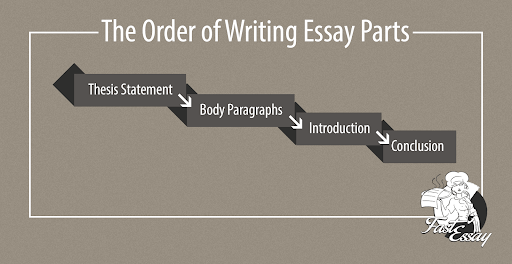
As for the writing per se, working on a paper that has to be done today is quite similar to the way you usually work – the only difference is that you have to save time whenever possible and work fast. It may be quite difficult to keep the necessary pace, so you should take care to maintain the discipline and avoid distractions. Here are some other things that you may want to consider:
- Speed things up by typing your notes in the same document you use for writing an essay. For example, plan out what exactly you are going to write in each paragraph: write a single sentence describing the main point it covers and a couple of lines that support the evidence for each paragraph. After you’ve mentioned all the points you want, reread the results. If necessary, reorganize them in the order that you consider as the most logical one. What results from it is going to be both a detailed outline of your essay and a framework around which you are going to build it.
- Arrange an outline that is basically the gist of your essay without all the usual filler, padding, and quotations. Your job now is to provide exactly this. Spread out your arguments, add citations from your sources, make sure paragraphs flow into one another logically, fill in the blanks, and you will see how the essay grows around the frame.
- Don’t bother with introduction and conclusion until you’ve written everything else. The introduction comes first for the reader but not for you. It should be written from the perspective of someone who already knows everything there. Know about the subject matter, research the essay question thoroughly and make all the necessary conclusions. If you try to write the introduction first, you will most likely have to rewrite it from scratch later on, so don’t bother. The most logical order of writing is a thesis statement – body paragraphs – introduction – conclusion. This order has been established by specialists long before you, so don’t try to reinvent the wheel.
- Complete the reference list. If you are told to provide references for your essay, do it as you go along. Don’t either put it off until the end (this way you may miss something) or try to organize your bibliography beforehand (you never know which sources exactly you are going to quote). Depending on the formatting style you use (APA, MLA, Harvard, etc.), organize quotations either as footnotes or directly in the text (as it is accepted in the APA style). When you quote somebody, add the necessary note to your bibliography and in the paper itself.
- Concentrate on one task at a time. Right now, it is writing. Don’t get distracted by correcting typos or mistakes until you’ve finished typing the whole essay unless you get really bothered by red underline in Microsoft Word. If you constantly go back to correct something, you risk losing your train of thought and, therefore, your momentum.
- Don’t plagiarize. As you write, you may be tempted to simply copy and paste a sentence or two here and there to speed up the process. Don’t do this. If you take something from another book or article, always quote it. Plagiarism is a serious academic offense that will cause you to lose your instructor’s trust at the very least. In many colleges, it may lead to other, even more unpleasant, consequences, up to expulsion. Taking into account how easy it is to check if the text is original these days, the risk is simply not worth it.
- Avoid relying on quotes too much. Students pressed for time often introduce long and numerous quotes into their writing, trying to bloat their word count as quickly as possible. Don’t do this – it is an obvious trick and immediately demonstrates that you didn’t do the work you were expected to. Most of the content should be your own. If you use quotes, make sure they are short and to the point.
How to Write a Research Paper in One Day: TOP Mistakes to Avoid
When thinking, “I need to write my paper in the same day, what do I do?” the main thing is to stay away from the range of mistakes your fellow students tend to make:
- Lack of planning. If you fail to plan, outline, or draft the paper, chances are you’ll fail to complete the work on time.
- Ignoring instructions. One of the main reasons students fail to get the paper done in one day is that they don’t stick to the given requirements.
- Neglecting editing or proofreading. No matter how fast you write your paper, editing it is a must. How to write a paper in a day? By thoroughly editing and proofreading it.
- Insufficient research. The problem is that many undergrads are so focused on how to write an essay in a day that they neglect the research stage.
Overemphasis on quantity . If you choose the word count as your priority, lack of focus and relevant content will 100% become the problem.
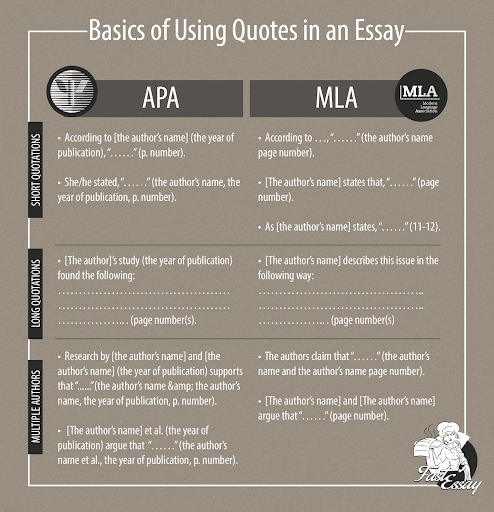
Writing a paper in a single day may seem like an impossible task, but you can do it if you organize yourself and decide here and now that you are going to emerge victorious from this predicament. Use these tips, and we are sure that you will be able to pull this off!
Can I Write an Essay in a Day?
Yes. You can accomplish an essay in a day. With focused work, careful planning, in-depth research, proper time management, and zero distractions, you can get the job done within the specified deadline.
Click on a star to rate it!
Average rating 5 / 5. Vote count: 1
No votes so far! Be the first to rate this post.
Author: Patricia Jenkins
Patricia Jenkins is the senior writing advisor at FastEssay blog for international students that seek quick paper assistance. In her blog, Patricia shares useful tips on productivity, writing, research, references. Sometimes Patricia goes off topic by sharing her personal experience peppered with lively humor and healthy irony. View all posts by Patricia Jenkins
How our customers find us
No time to finish your essay.
Get writing help 24/7
How to write a whole research paper in a week

Writing up a full research article in a single week? Maybe you think that’s impossible. Yet I have done it repeatedly, and so have students in my courses. This is an exceptionally joyful (even if demanding) experience: being so productive just feels great! You are not wasting any time, and a paper produced in one go is typically coherent and nice to read. Even if you are a slow writer, you can write a whole paper in a single week — if you follow my strategy. Read below about what you need to prepare and how to approach this project.
I wrote my first scientific research article in 7 days. It started as a desperate effort to stop my procrastination and “just do it”. But I was surprised what a positive experience it was: focused and efficient, I was making daily progress, feeling motivated and content. Finally, the fruits of my hard work were gaining shape — and they did it so quickly!
I realized it was highly effective to write up a paper like this: writing for the whole day, every day until the first draft was finished. My writing project was firmly present in my mind — I didn’t lose time catching up with what I have written in the last session. Since I was not doing anything else, my wandering mind settled in very fast, and I was getting into a routine. The daily progress was clearly visible and motivated me to continue. And the result was a coherent paper that was easy to revise.
Meanwhile, this paper-a-week approach is my favorite. That’s how I write my papers, and that’s what I teach to students. In on-site courses young scientists draft a whole paper in 5 days, writing one major section per day. At the beginning of the week, many participants have doubts. But at the end of the week, they are all excited to see how much they managed to write in just a single week.
If you would also like to try out this approach, then read on about the necessary preparations, the optimal setting, and a productive writing strategy.
If you would like to get support during the preparation, drafting and revising of your research article, check out my online course Write Up Your Paper .
Prepare well
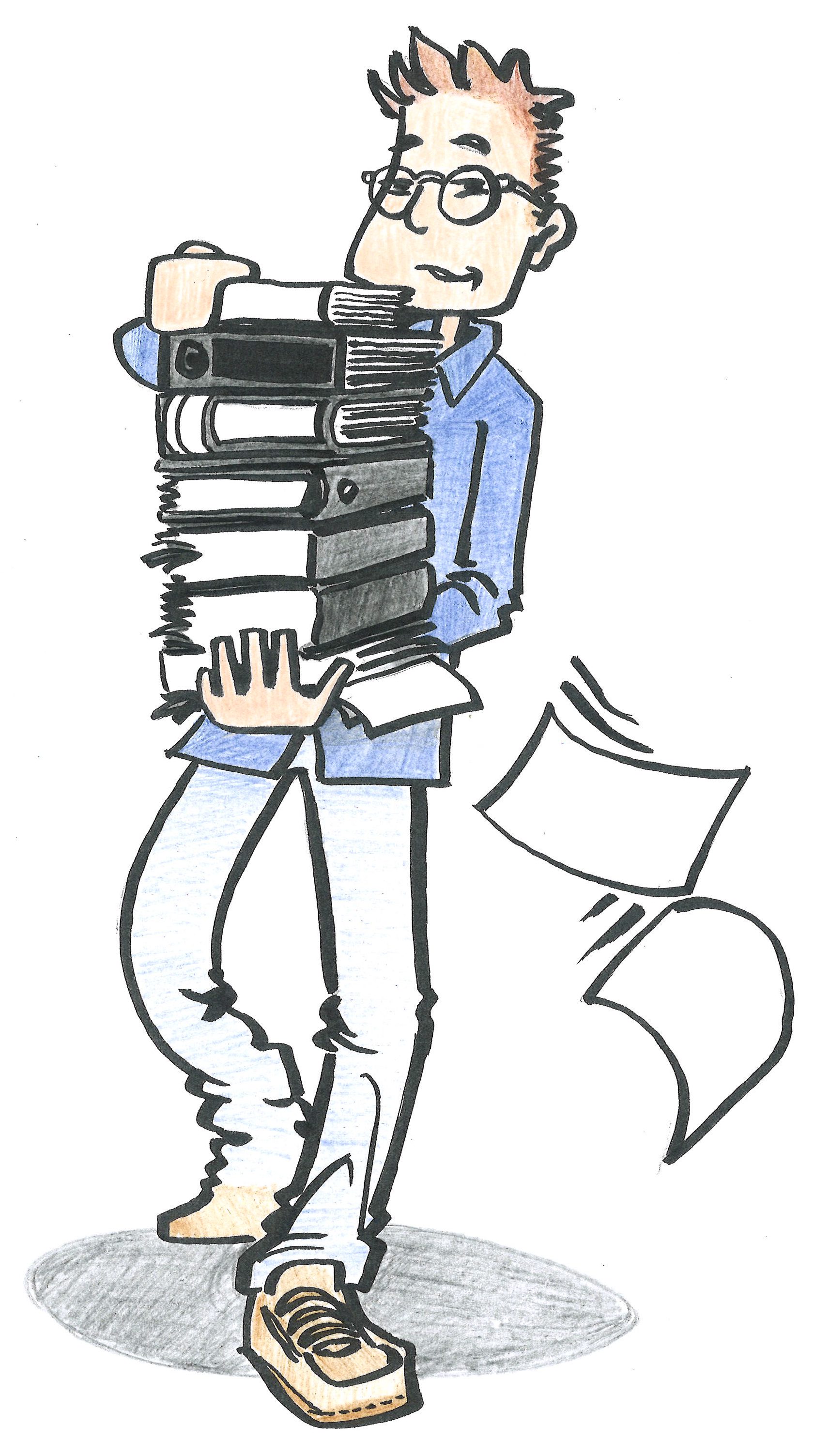
- First, think about your audience and pick a suitable journal . This is an important step because the audience and journal determine the content & style of your paper. As a reference, pick two recent papers on a similar topic published in your target journal.
- Create a storyline for your paper. What is the main message you want to convey, and how are you going to present your results?
- Put together all the results that you need to present your story convincingly: collect the necessary data, finish analyses, and create figures and tables.
- Select and read the relevant background literature as well as studies you want to compare your work with. As you read, note down any point that comes to your mind as something to be mentioned in the Introduction or Discussion section.
- Draft a preliminary Abstract : it will help you keep the direction and not get distracted by secondary ideas as you write the individual sections.
Depending on how complete your results already are, you might need 2-4 weeks to finish all these preparations. To help you keep an overview, I created a checklist with detailed steps that you need to take before you attempt to write up your paper in a week. Subscribe to our Newsletter and get your copy of the checklist.
Reserve a whole week for writing
Now, writing a paper in a single week is a serious business. You can’t do it if you don’t focus solely on the writing and create good writing conditions. Therefore, I recommend the following settings:
- Find a place where you can write without distractions. I have written my first paper over the Easter holidays when there was nobody in the office. You might choose to write at home or in a library. Though if possible, the best is to go for a retreat: removing yourself from your everyday settings immensely helps focus on the writing.
- Cancel (all) social obligations for the week. While it’s crucial to relax in the evening, you want to avoid disturbances associated with social events. Anything that makes your thoughts drift away from your work because it requires planning, exchanging of messages with others, or simply because it’s too exciting is better left for some other week. On the other hand, a quiet meeting with a good friend over a glass of wine or beer might be just the perfect way to unwind and rest after a productive, yet exhausting day of writing.
- Get support from the partner, family or friends — if possible. It’s best when you don’t need to run errands, cook and clean during this week. If you live alone, you can probably easily arrange yourself for undisturbed work. If you live with other people, ask them for consideration and support.
What I described above are the *ideal* conditions for undisturbed writing. But don’t give up if you can’t create such conditions for yourself. Work with what is possible — maybe it will take you 7-8 instead of 5-6 days but that’s still a great result, right?
Do you need to revise & polish your manuscript or thesis but don’t know where to begin?
Get your Revision Checklist
Click here for an efficient step-by-step revision of your scientific texts.
Maybe you think that you can never ever draft a research article in a single week. Because you write so slowly, producing only few paragraphs per day. Well — I agree that if you don’t optimize your writing strategy, it would be hard to impossible to write up a whole paper in a week.
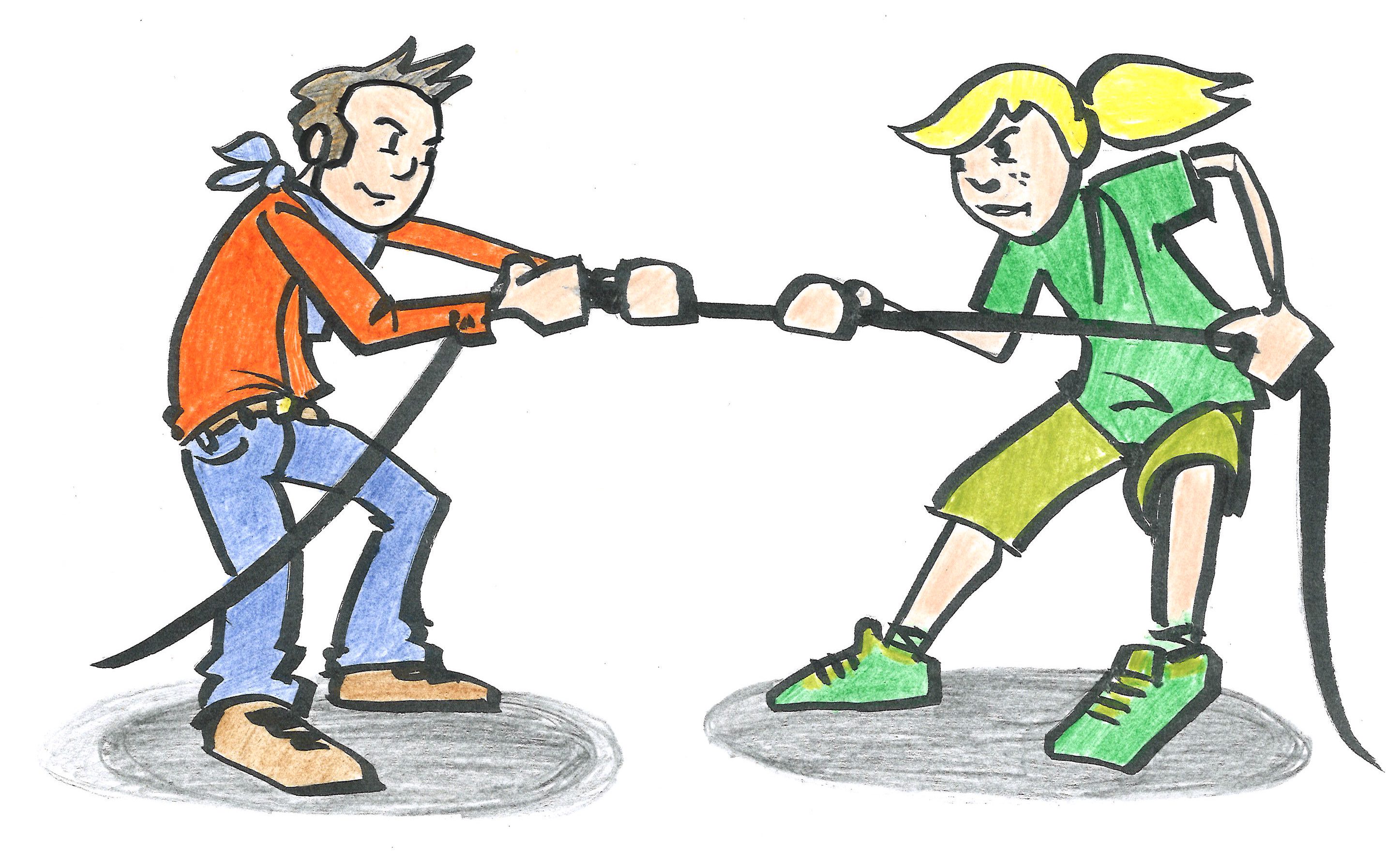
- Separate the processes of writing and revising. That’s the most important principle. Resist the urge to revise as you write the first draft. Moreover, don’t interrupt your writing to look up missing information. Work with placeholders instead. This allows you to get into the state of flow and proceed much faster than you can imagine.
- Start your writing day with 10 minutes of freewriting . Write without stopping about anything that comes to your mind. This helps you to warm up for writing, clear your head of any unrelated thoughts, and get into the mood of writing without editing.
- Take regular power breaks. I recommend to follow the Pomodoro technique : write for 25 minutes and then take a 5-minute break. After 3-4 such sessions take a longer break of 0.5-1 hour. During the breaks get up, walk a bit, stretch, look around, and breathe deeply. These breaks help you sustain high focus and productivity throughout the whole day.
- Eat and sleep well. What you are doing is similar to a professional athlete. So take care of your brain and body, and they will serve you well.
- Reward yourself. Every day celebrate the progress you have made. You have full right to be proud of you!
Write the individual sections in a reasonable order
If you have written a research paper before, you have probably realized that starting with the Introduction and finishing with the Discussion is not the ideal order in which to tackle the individual sections. Instead, I recommend the following procedure:
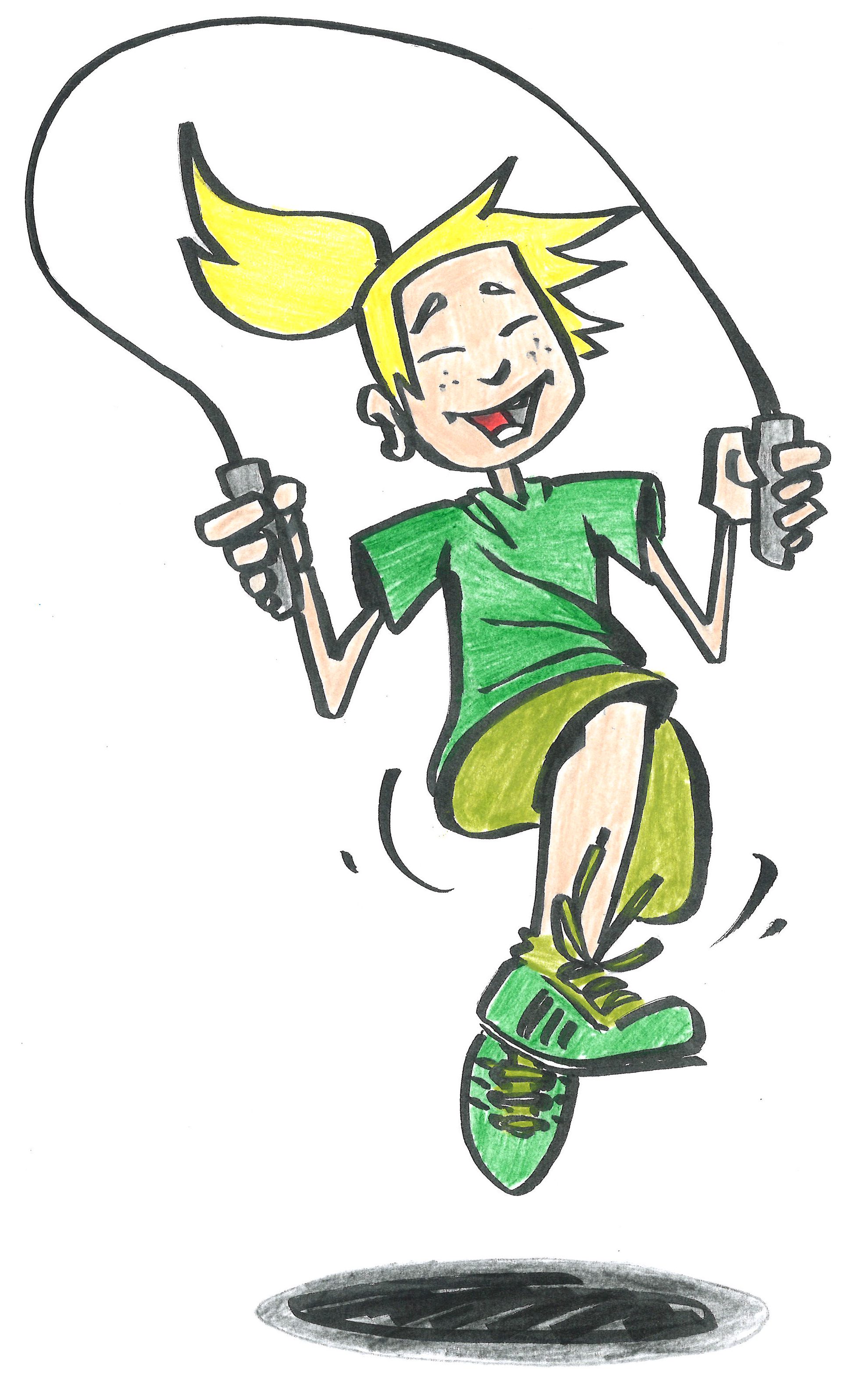
- Start with the Methods section. This is the easiest section to write, so it’s great as a warm-up, to get into writing without the need to think (and procrastinate ;)) too much. Look at your figures and tables: what methods did you use to create them? Then describe your methods, one after another.
- Results section: Writing the Methods section refreshes your memory about the research you have done. So writing the Results section next should not be too hard: Take one display object (figure or table) after another, and describe the results they contain. While you do so, you will come across points that need to be discussed in the Discussion section. Note them down so you don’t forget them.
- Introduction : When your results are fresh in your mind, you are in a great position to write the Introduction — because the Introduction should contain selected information that gives the reader context for your research project and allows them to understand your results and their implications.
- Discussion : When you have taken notes while writing the Results section, the Discussion section should be quite easy to draft. Don’t worry too early about the order in which you want to discuss the individual points. Write one paragraph for each point , and then see how you can logically arrange them.
- Abstract and title : On the last day, revise the preliminary Abstract or write a new one. You could also take a break of a few days before tackling the Abstract, to gain clarity and distance. Generate multiple titles (I recommend 6-10), so that you and your co-authors can choose the most appropriate one.
Just do it!

Once you have written the whole draft, let it sit for a week or two, and then revise it. Follow my tips for efficient revising and get your revision checklist that will guide you step-by-step through the whole process.
Now I am curious about your experience: Have you ever written up an academic article quickly? How did you do it? Please, share with us your tips & strategies!
Do you need to revise & polish your manuscript or thesis but don’t know where to begin? Is your text a mess and you don't know how to improve it?
Click here for an efficient step-by-step revision of your scientific texts. You will be guided through each step with concrete tips for execution.
7 thoughts on “ How to write a whole research paper in a week ”
Thank for your guide and suggestion. It gives to me very precious ways how to write a article. Now I am writing a article related to Buddhist studies. Thank you so much.
You are welcome!
excellent! it helped me a lot! wish you all best
Hi Parham, I’m happy to hear that!
I have never written any paper before. As I am from very old school.
But my writing skill is actually very good. Your help is definitely going to help me as this has inspired me alot. Will let you know, once done. I really like the outline that you have given. Basically you have made it so easy for me .
Hope fully will be in touch with you soon.
Thanks and ki d Regards, Shehla
Dear Shehla, that sounds great! I’m looking forward to hearing about your paper!
Comments are closed.
Diese Webseite verwendet Cookies, um Ihnen ein besseres Nutzererlebnis zu bieten. Wenn Sie die Seite weiternutzen, stimmen Sie der Cookie-Nutzung zu.

Tips for Online Students , Tips for Students
Hacks How to Write a 10 and 20 page Paper in One Night
Updated: July 15, 2022
Published: April 19, 2020

It’s the night before a big paper is due. For whatever reason, you find yourself needing to write an entire research paper in a very short amount of time. While procrastination isn’t ideal, extenuating circumstances may have caused your timeline to get pushed back. So, here you are, looking for how to write a 10-page paper or how to write a 20-page paper in one night.
It goes without saying the best way to write a paper is to give yourself enough time to outline, draft, and edit. Yet, it’s still possible to write in less time. Take heed of these best tips and tricks to organize your thoughts and get your thesis on paper as fast as possible.
Photo by Adolfo Félix on Unsplash
How to prepare before you write, 1. create a schedule to maximize your time.
You’ve likely already spent time panicking. Once you calm yourself of the anxiety of having to finish a 10- or 20-page paper in one night, organize your plan of attack. First, you should designate an area free of distractions so that you can focus. Aside from a few breaks and snacks, it’s best to set up a comfortable place to write. Give yourself some time to outline and find/cite research . Once you know how you’re going to approach the subject, then you can start drafting.
2. Determine your Main Topic
If you’ve been given a prompt, then your topic is clear. However, sometimes you have the freedom to choose what your research will be about. In this case, it’s smartest to choose a topic that you are already knowledgeable about. That way, you will save yourself key time that would have otherwise been spent on research. If you don’t feel strongly about any particular topic, then at least try to pick one that has a lot of information available.
3. Perform Research
Start looking up sources to cite that support your thesis, or main argument. As you research, be sure to take notes. One of the best ways to do this is to use a word processor like Google Docs or Microsoft Word to copy and paste URLs. For each source, it would be best to copy/paste one main sentence that covers its point.
Then, you can write brief notes in your own words that summarize what you have read from that source. While you are performing research, you can start to put together an outline, or the flow of how you will present your ideas broken down by topic and argument.
4. Outline 3-5 subtopics
Once you’ve chosen your topic, then try to pull 3-5 subtopics from it. Each sub-topic should be juicy enough to be able to write a lot about it. The subtopics are your supporting paragraphs which fill the body of the research paper. They should basically be mini essays within themselves.
Writing in One Night
Writing a long research paper in one night isn’t ideal, but it is doable. Some of the best ways to get it done is to follow these 5 tips:
1. Plan and Outline
Take those few extra moments to plan and outline your paper. While it may feel like a waste of valuable time, it is going to help you stay on track. When you have an outline and you get to the middle of your paper, you won’t feel lost as to how to continue. An outline will be useful to you like a map is on a journey.
2. Use Specialized Search
Take advantage of search tools that are designed for scholars. For example, a few of these include: Google Scholar and Elsevier .
3. Leverage Tools
There are citation management tools that will help you find sources for your topic. Mendeley is just one of them. You can type parts of your paper into the tool and find quotes of value. Be sure to cite everything you use to avoid plagiarism .
4. Proofread and Edit
Once you complete writing 10 to 20 pages, you may feel like throwing in the towel and going to sleep for a few hours. However, it is crucial to power through and proofread your paper. If you have anyone available who can read your paper over, that would be best because it’s hard to catch mistakes when you’ve been looking at the same thing for so long. But, if no one is available, try to read your paper back to yourself out loud. This way, you may be able to catch typos better.
5. Check Formatting
Every research paper needs to adhere to a particular format guideline. Whether it’s APA, MLA, or another standard formatting practice, be sure to double check that your layout adheres to the guidelines.
Photo by Christin Hume on Unsplash
When to start writing.
If you have yet to find yourself trying to write a paper at the last minute and all the notes above are scaring you out of procrastination, then that’s a good start! Perhaps you were recently assigned a research paper. In this case, the best way to tackle the project is to do the following:
Start Early
Get started right away. Even if it means just performing early research or writing an outline, starting early is going to save you from having to write a paper in one night down the line. When you start early, you benefit greatly because you can: leverage peers for ideas, take the necessary time to edit and rewrite, and you lower your risk of picking a topic with too little information and having to change topics at the last minute.
Writing in Stages
Starting early also affords you the opportunity to write in stages. You can think of writing as a cycle when you write in stages. First, you can create your outline. Then, you can write the introduction, edit it, and rewrite anything you may need to before moving on to the next piece (or the first body paragraph, in this case).
Use a Timeline
Create a timeline for your writing in stages. If you start four weeks in advance, for example, you have time to do all of the following:
- Fully understand the assignment and ask any questions
- Start to read and document sources
- Create notecards and cite books for sources
- Write a summary of what you’ve discovered so far that will be used in some of your paper
- Create 3-5 subtopics and outline points you want to explore
- Look for more sources on your subtopics
- Start writing summaries on each subtopic
- Write some analysis of your findings
- Start to piece together the research paper based on your notes and outline (almost like completing a puzzle)
- Edit and proofread / ask for feedback
The Writing Process
The actual writing process is a little different for everyone, but this is a general overview for how to write a 20-page paper, or one that is shorter.
- Start with a Thesis: Your thesis is one sentence that clearly and concisely explains what you are going to prove with research.
- Include a Menu Sentence: At the end of your introduction, you will briefly outline your subtopics in what is often referred to as a “menu sentence.” This allows the reader to understand what they can expect to learn about as they continue to read your paper.
- Create a Detailed Introduction: Your introduction should be detailed enough so that someone with little to no knowledge about your subject matter can understand what the paper is about.
- Keep References: Be sure to write your references as you go along so that you basically can create your bibliography in the process of writing. Again, this is where a tool like Mendeley may be useful.
- Write First: Write first and edit later. You want to get all your ideas down on the page before you start judging or editing the writing.
- Save Often: Create the draft on a cloud platform that is automatically saved (i.e. Google Docs in case your computer crashes) or email the work to yourself as you go.
The Breakdown of a 10-Page Paper
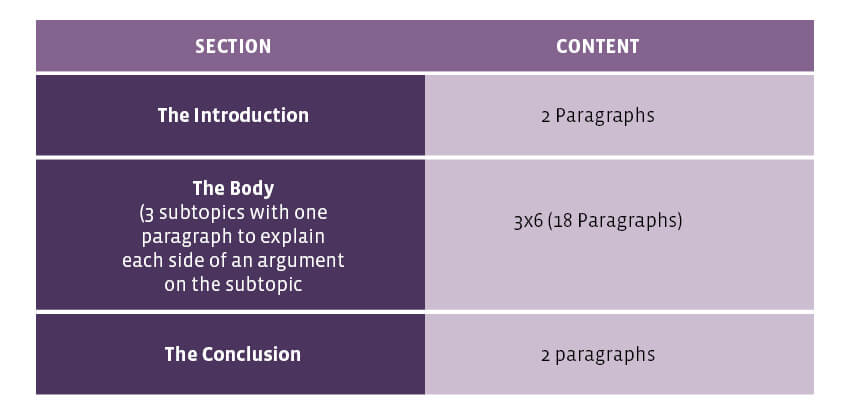
Sources to Consider Using
When writing your research paper and finding sources, it’s best to use a mix of sources. This may include:
- Internet: The Internet is filled with limitless possibilities. When you use the Internet, it’s best to find credible and trustworthy sources to avoid using fake news as a source. That’s why tools like Google Scholar can be so helpful.
- Textbooks: It’s more likely than not that you’ll be able to use your class textbook as a source for the research you are conducting.
- Books: Additionally, other books outside of those you read within your class will prove useful in any research paper.
Final Steps: Editing and Formatting
Once you’ve written all your ideas on the page, it’s time to edit. It cannot be stressed enough that editing is pivotal before submission. This is especially true if you’ve been writing under immense pressure.
Writing a 10- or 20-page research paper in one night is not easy, so there are bound to be mistakes and typos. The best way to catch these mistakes is to follow these tips:
- Take a break before you edit so you can come back to the page with somewhat fresh eyes and a clearer head
- Read it out loud to edit and catch mistakes because sometimes your brain will override typos or missing words to make sense of what it is reading
- If possible, ask someone else to look it over
- Consider using footnotes or block quotes
- Format according to how your university asks – MLA or APA, etc.
The Bottom Line
Life throws curveballs your way without warning. Whether you are holding yourself accountable for procrastinating or something out of your control came up, you may find yourself needing to write a big research paper in one night. It’s not the best-case scenario, but with the right tools and tricks up your sleeve, you can surely get it done!
Related Articles
Can You Write 3 Essays in One Day? Tips to Write Many Essays In a Day
Some of us may be fast writers, but many of us are unfortunately not. For example, a skilled writer could write an essay quickly; the same paper that would take some inexpert writer hours.
It would help if you had a grasp of speed typing abilities to write an essay very quickly. Additionally, you would require an adequate strategy and some devoted coaching.
You would want to know; even with a grasp of all these necessities, can you write three essays in one day?
To get the answer to this question, read through this article and also learn the art of proficient essay writing.
Can You Write 3 Essays in One Day?
Anyone can write three essays within a day if they possess exemplary research and writing abilities. If the number of pages required for the essays is small, writing three of such essays in a day is possible.
Writing an essay in a short time is not a walk in the past.
A well-written essay serves the reader with a legible thesis, lucid supporting paragraphs, and a polished conclusion.
Also see: Is it wrong to pay essay writing companies to do your work?
Composing such a fluent essay will, therefore, certainly consume a lot of time.
Nevertheless, writing three fluent essays in one day is still a possibility.
All you need to accomplish the task is to arm yourself with a qualified plan and proficient writing skills.
Of course, you’d also need to develop a writing discipline and avoid unnecessary distractions.
How Many Essays Can I Do in One Day?
As an amateur writer, you can compose 1 to 2 essays a day, while a proficient writer can tackle 3 to 5 essays daily. The number of essays you can do in a day will highly depend on how skillful you are in essay writing.
Again, the number of words required for each essay should be a consideration.
The number of short essays I can tackle in a day will be more than the number of lengthy essays.
This question will also depend on the complexity of the subject I am tackling in the essay.
For example, a complex topic would require me to conduct more research, which will consume more time. As a result, I will compose fewer essays.
There is a strategy to writing many essays in a short period. Avoid being too wordy and apply fewer words that communicate clearly.
Can I Write a 3 Page Paper in 2 Hours?
Armed with a clear writing plan, you can comfortably write a 3-page paper in 2 hours. Furthermore, if the paper is double-spaced, you should complete the task even within 1.5 hours.
The topic you are tackling would, in such a case, be simple, and the quality of writing expected not very high.
The topic you are writing on could call for exhaustive research, citations, and links. But, unfortunately, 3-page writing of such work could take longer, longer than even 5 hours.
How Long Should It Take to Write a 3-page paper?
It should take a professional writer 2 hours to an hour and approximately 4 hours for an amateur writer to write a 3-page paper. However, there is no definite time that one should consume to write a 3- page paper.
The technicality of the subject matter will surely command the time you consume. Your familiarity with the topic is also crucial.
A topic you are well conversant with will take you less time; You will spend less time researching.
The amount of time accorded to complete the assignment is a vital determinant. The more time you have to complete the project, the longer you take to write the 3-page paper and vice versa.
The answer to this question will also depend on the author’s writing abilities. A seasoned writer with quality research and typing skills will consume less time to write the paper.
Tips on How to Write Many Essays in a Day
Writing any well-researched essay is not an easy assignment. Moreover, composing multiple such essays within a day is an even more complicated task.
You are a student, an employee, or a professional essay writer with a deadline to submit your essays approaching.
Also see: Will My Instructor Tell If I Hired An Online Essay Writer?
How do you write multiple essays in a day to meet the stipulated deadline?
Below is a list of tips that you could employ to help you compose many essays within one day.
- Apprehend the assignment first . Clearly understanding the topic will ensure you spend less time in research. You, therefore, consume less time in writing the essay. If you spend little time writing one piece, then you will comfortably cover many in a day.
- Conduct proper research . Research competently on the subject matter. As a result, you will be left with sufficient information to write your essay. You, therefore, speed up your writing process. Make it a mission to improve your research skills.
- Hire an online essay writer . If you are a slow writer, hire the services of an online professional writer . The writer will deliver the essay faster and more effectively. Such a service can write multiple essays a day for you. In return, you meet the deadline comfortably.
- Choose a suitable writing environment . Distraction is second to procrastination which is the main obstacle to complete any task. Choose a peaceful place to beat distractions. Move to a quiet place and assemble all your requirements. You will therefore be able to work faster and write many articles in a day.
- Set up a deadline. Establish a deadline to complete an essay and strive to meet the deadline. By doing so, you can effectively manage your time and write more essays in a day.
Final Thoughts
Do you have the necessary writing skills to compose multiple essays within a given time? If so, can you write 3 essays in one day? Practice more and more to become a proficient essay writer.
In the end, practice will make perfect.
- Have your assignments done by seasoned writers. 24/7. Contact us:
- +1 (213) 221-0069
- [email protected]

How Long to Write a 3-Page Essay? A Guide how to write one

How long to Write a 3-Page Essay
The number of words that a three-page essay should have depends on several factors. The font size, style, and line and margin spacing are some of these factors.
A 750-word essay can fit on three pages if; the font style is Times New Roman, the font size is 12, and the lines are double-spaced. A well-experienced and expert ghostwriter for college papers from our essay writing service tells us that this is the standard formatting for a 3-page essay.

When the lines are single-spaced, a three-page essay should have a total of 1500 words. Since the two most widely used formats in the world (APA and MLA) require double-spaced lines, Times New Roman font style, and font size 12, it is fair to say that a three-page essay is 750 words long.
A three-page essay is mainly viewed as the standard length required for middle school essays. Three-page high school reports are viewed as short.
Three-page essays require writers to have short introductions and conclusions. This gives the writer a chance to construct and explain arguments effectively in the essay’s body part.
How many Paragraphs should a Three-Page Essay have?
The minimum number of paragraphs an essay should have is 3. No rule governs the maximum number of paragraphs that an essay should have.

Sticking to a certain number of paragraphs should be done if the instructor orders so. Paragraphs in academic essays are shorter than paragraphs in blog posts.
On average, paragraphs should have between 100-200 words.
A three-page essay with an average of 750 words should therefore have 5 paragraphs. This is according to the basic essay word-to-paragraph conversion.
The first paragraph is the introduction. This is where you introduce the subject matter of the essay. The next three paragraphs are the body of the essay.
This is where you build your essay with the main talking points of your topic. The last paragraph is the conclusion, where you conclude with what your essay has been all about.
How to write a 3-page essay fast, in an hour?
The length of your essay should not be a concern when writing. All you have to do is follow the assignment instructions, and your paper will be fine.
Considering the work that is needed to write a good essay eventually, one hour is basically not enough. One can follow the following process to ensure that when they start writing essays, they do it quickly within a short period.
1. Plan your time well
It is not always a good idea to jump into writing your essay. Even if you have the best ideas in your mind, it is always essential to plan your time.
Planning your time helps manage all the steps needed in essay writing, meaning no step will consume more time than planned. Planning your time is the best way to beat the deadlines provided by instructors.
2. Read Extensively

Once you have known the topic and the other requirements of the essay besides the length, examine the topic and conduct research on that topic.
Papers requiring extensive research may require visiting the library or online resources to gain vast knowledge on a particular topic.
Simple essays may only require reviewing your notes or getting quotes from specific books.
When conducting research, you must take notes. Writing down points you have gathered from different resources helps you save a lot of time when you begin writing down your essay.
3. Formulate a Thesis Statement
A thesis is an argument about your essay’s topic backed by arguments. This gives you time to develop other sections of your paper and use the idea to quickly build a draft of the essay.
The thesis statement also helps you to perfectly organize your paper so that the reader will follow it easily.
4. Use the Thesis to Create Topic Sentences
Around your thesis, formulate topic statements that you will use to build up sentences and paragraphs. A good thesis will help you include the most supportive ideas in your essay.
Good topic sentences are not only the best starting point in your essay paragraphs but also make the format and flow of the essay great.
5. Begin Writing your Essay
There is no need to draft a copy considering the time given. With the above processes already done, writing your essay should be easy and fast.

Always, with a good plan and quality essay, writing your 3-page essay should take at least 40 minutes. This is enough time to wrap up your essay with perfection.
When writing the introduction, always make sure that you catch the reader’s attention.
Begin your essay with something unique, specific, or unusual that will likely interest the reader and continue reading your essay.
After the introduction, moves on to the body paragraphs of your essay. Each paragraph should contain a topic from the thesis.
Each topic should be backed up with evidence too. Evidence usually helps support the arguments you present on a topic.
Evidence can include facts or observations of a phenomenon. Quotes from books and journals can also be presented as evidence.
Essay conclusions should always be brief. The main points should be restated differently than they were in the thesis. Avoid repeating points already stated in your essay in your conclusion.
Conclusions should always be written to leave an impression on readers. Quotes, sarcasm, and wise saying such as proverbs can be used in essay conclusions.
6. Check the Length
To ensure you meet the three-page requirement, it is always advisable to check your length.
If you do not meet the requirement, you should consider extending your essay slightly more. You can add to the introduction, conclusion, or any paragraph you feel you’ve not exhausted.
7. Proofread and Edit your Essay
Many people prefer writing fast and editing their essays slowly. Read your essay and correct errors that you may have made while writing your essay.
Check word spelling, and tautology, among other grammatical errors. Editing is always easy if the above process is followed to the latter.
It is important to note that writing a good three-page essay is not easy. Only experienced and expert writers can manage.
As a student, if you are at a point of asking yourself if you can complete a three-page essay in an hour, then it means you are rushing to beat the deadline. Writing essays within a short time depends on your ability to understand a topic and formulate a thesis statement.
Your writing skill and the time it will take to find the necessary resources determine how long you will take to write an essay.
Get help from essay writing services, which also charge a high cost on narrow deadlines, if you need an essay in one hour or two and feel you can’t complete it.
Essays that require short research pieces take longer to write than essays that require larger research pieces. The short research pieces are usually hard to find.
8. Use AI Tool for Assistance

The online community seems divided on whether or not to use AI-based tools for writing. The number of users of such tools is increasing daily because these tools make work easy.
This makes it an option for students to use when they want to ace their writing process.
You can use an online paraphrasing tool that works on AI for your assistance. Such a tool becomes an option and can do well if you combine it with your own input.
Please note that you can correct your sentences while following best essay writing practices. This will overall help you write professionally and appropriately.
How Long Does it Take to Write a 3-Page Paper Double-Spaced?
A three-page, double-spaced essay will have approximately 750 words. The time the essay takes to be completed usually depends on several factors:
- Availability of research materials.
- Typing or writing speed.
- Your ability to understand the topic of the easy and break it down.
- Your ability to make your essay simple and direct. There is no time to change the direction your essay takes.
Skilled and professional writers can complete a 750-word essay within an hour or less.
As a student, you must take more time to write your essay to ensure that you write a good essay that will earn you a good grade. There is no need to hurry.
What does a 3-page Essay look like?
A three-page essay should have five paragraphs. The first paragraph is the introduction. The next three paragraphs are the body of your essay.
The last paragraph is the conclusion. How other inclusions in your essay, such as titles and references, look depends on the writing format used.
3-page research paper examples
- Effects of social media on the youths.
- Should higher education be made free?
- Has the plastic ban made any impact on the country?
- Urbanization has led to increased pollution.
- Has the “Black Lives Matter” campaign yielded any fruits?
- Family planning should be made mandatory in third-world countries.
- Divisive politics are dragging most states behind.
- Drug abuse among teenage girls is rising rapidly.
- Why do early pregnancies represent our rotten societies?

Jessica Smart
Related posts.

what Respondus Records
Does Respondus Record you, Sound or Screen? Is it Safe?

writing Single-spaced Essay
Single Spaced Essay in Word: What it is, Meaning and Format

Comparing Thesis and a Claim
Is a Thesis the same as a Claim: How to Write Each

IMAGES
VIDEO
COMMENTS
How to Write a 6-to-12-Page Essay in a Matter of Hours. Schedule your time. Compose your thesis and intro paragraph. Do your research. Write your body paragraphs. Create a conclusion. Take a troubleshooting break. Add your finishing touches.
1.45pm - 6pm: Write the body of the essay. 6pm - 6.45pm: Dinner break. 6.45pm - 10.30pm: Edit, improve and meet the word count. 10.30pm - 11pm: Print (if needed) and get everything ready for the morning. Remember to schedule a few short 10-minute breaks (one every 45-60 minutes should do the trick).
When writing a 3-pages essay, your introduction and conclusion should have approximately 10-15% of the word count. This means that they should at least be between 100 and 125 words long. The body should carry 75-80% of the word count, which translates to between 620 and 660 words for a 3-page body paragraph.
The 15-Day Essay Day 1 Spend a few hours working on a list of ideas that could become potential essays. Choose one and make an outline. Day 2. Write your essay! Days 3-4: Ask a few people who you think would give constructive comments to read your essay— teachers, parents, and friends. Spend some time doing content and structure edits.
A 3-4-page paper is around 825-1200 words long with 4-5 points well-argued and organized in paragraphs, including the arguments and counterarguments. It is a complete essay with a title page, introduction, body paragraphs, conclusion paragraph, and reference list. The is typically longer than a typical 5-paragraph essay (250-550 words) and ...
Establishing deadlines for a one-day essay is key. Budget 5-10 minutes for brainstorming, 15-20 minutes for creating an outline, and several hours for writing. You can also set aside an hour for ...
Master essay writing with our guide on crafting a 3-page essay. Learn to research, structure, and refine your work for academic success.
To make your essay stand out, write your story in a way that no other student can replicate. As you write, keep these tips in mind: Zoom in on specific moments rather than summarizing a long period of time. Be vulnerable and share your honest feelings and thoughts. Use your authentic voice and an appropriate tone.
The essay writing process consists of three main stages: Preparation: Decide on your topic, do your research, and create an essay outline. Writing: Set out your argument in the introduction, develop it with evidence in the main body, and wrap it up with a conclusion. Revision: Check your essay on the content, organization, grammar, spelling ...
If you're a student, you've probably asked yourself this question. 3 page essays are usually assigned to check one's ability to formulate their thoughts. A three page essay word count is 700 to 750 words (12 pt double-spaced). A paper of 3 pages usually consists of 7 to 9 paragraphs. When choosing a topic for a 3 pages essay, remember ...
To focus and increase concentration, just tell yourself, "No one is going to write my essay for me; I can handle that!" and do the following: Create a schedule for your paper. For example, you can decide to give 4 hours a day to write your paper. Or you can schedule a 3 day intense crash writing for your paper. Reduce different distractions.
How to Write a Paper in 1 Day. 5. ( 1) Without any doubt, the best way you can follow when you are given an academic assignment is to plan ahead and gradually write it over the entire period of time you're given to perform the task. It is especially true for large research papers that take a while to collect all the information needed when ...
In this case it was a Monday, and I had an exam Sunday 12-3. So I got done at 3, relaxed for a bit, had dinner, and planned to do a lot of pre-writing and planning, start the paper and then wake up to bang it out. About an hour into my work I noticed at the top of the assignment it said it was due at noon. Thus began my all-nighter.
Abstract and title: On the last day, revise the preliminary Abstract or write a new one. You could also take a break of a few days before tackling the Abstract, to gain clarity and distance. Generate multiple titles (I recommend 6-10), so that you and your co-authors can choose the most appropriate one. Just do it!
3-4 pages, that's nothing! comes down more to how much researching you have to do. 3-4 pages if you are just writing should only take a few hours to be decent. better get off reddit and start working. Did 12 pages + a works cited in one day before 0/10 don't recommend 🙃.
1. Create a Schedule to Maximize Your Time. You've likely already spent time panicking. Once you calm yourself of the anxiety of having to finish a 10- or 20-page paper in one night, organize your plan of attack. First, you should designate an area free of distractions so that you can focus.
Writing a good paper that long takes at best 3 days. One day for researching and drafting, second day to rewrite it, third day for proofreading. Outlines will always help but it won't speed you up. Now writing without a caring about your grades or good the paper is should take you 6 or so hours. One hour reading, one hour drafting, 4 hours ...
The typical writer can write an essay in 2-3 hours per day, therefore if you work for 8 hours per day, you should be able to do 3-4 essays per day. But, once again, it is contingent on your ability to write. Continue to practice so you can improve your skills and produce more essays in a day.
As an amateur writer, you can compose 1 to 2 essays a day, while a proficient writer can tackle 3 to 5 essays daily. The number of essays you can do in a day will highly depend on how skillful you are in essay writing. Again, the number of words required for each essay should be a consideration. The number of short essays I can tackle in a day ...
A 750-word essay can fit on three pages if; the font style is Times New Roman, the font size is 12, and the lines are double-spaced. A well-experienced and expert ghostwriter for college papers from our essay writing service tells us that this is the standard formatting for a 3-page essay.
The writing process doesn't all happen in a single day, weeks of reading and thinking about the topic build up and the actual typing is only the expression of those thoughts. Unfortunately, there's no great solution that can be applied at the end of a semester to give you all the background needed to make your final papers easy to write.
Easily. Type with double space on and word vomit until you hit 5.5-6 pages. Insert sources and information, reread and cut whatever isn't your favorite/shouldn't make the cut, and turn it in. I did this for every paper in college, usually resulted in anything from A+ to a C+.